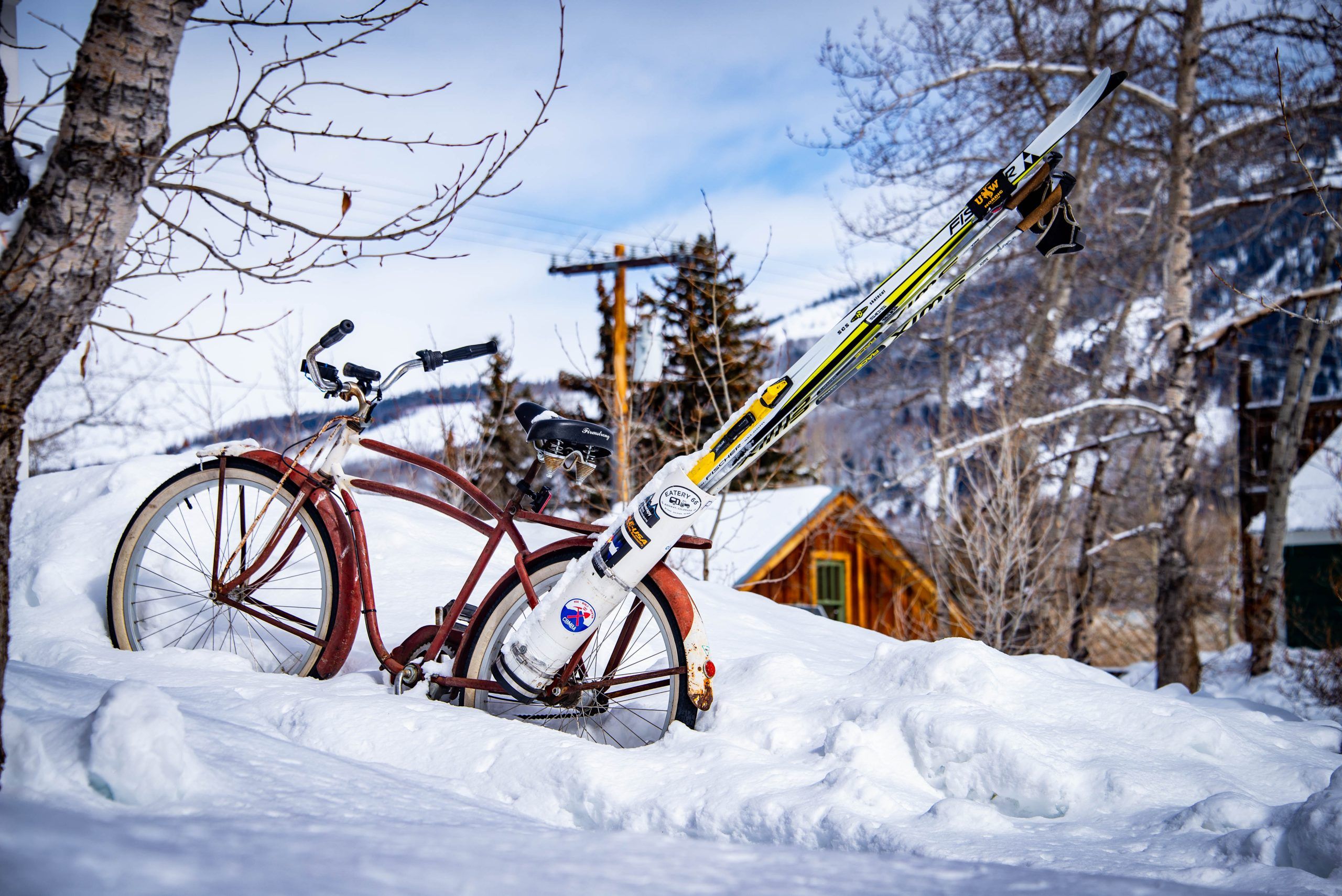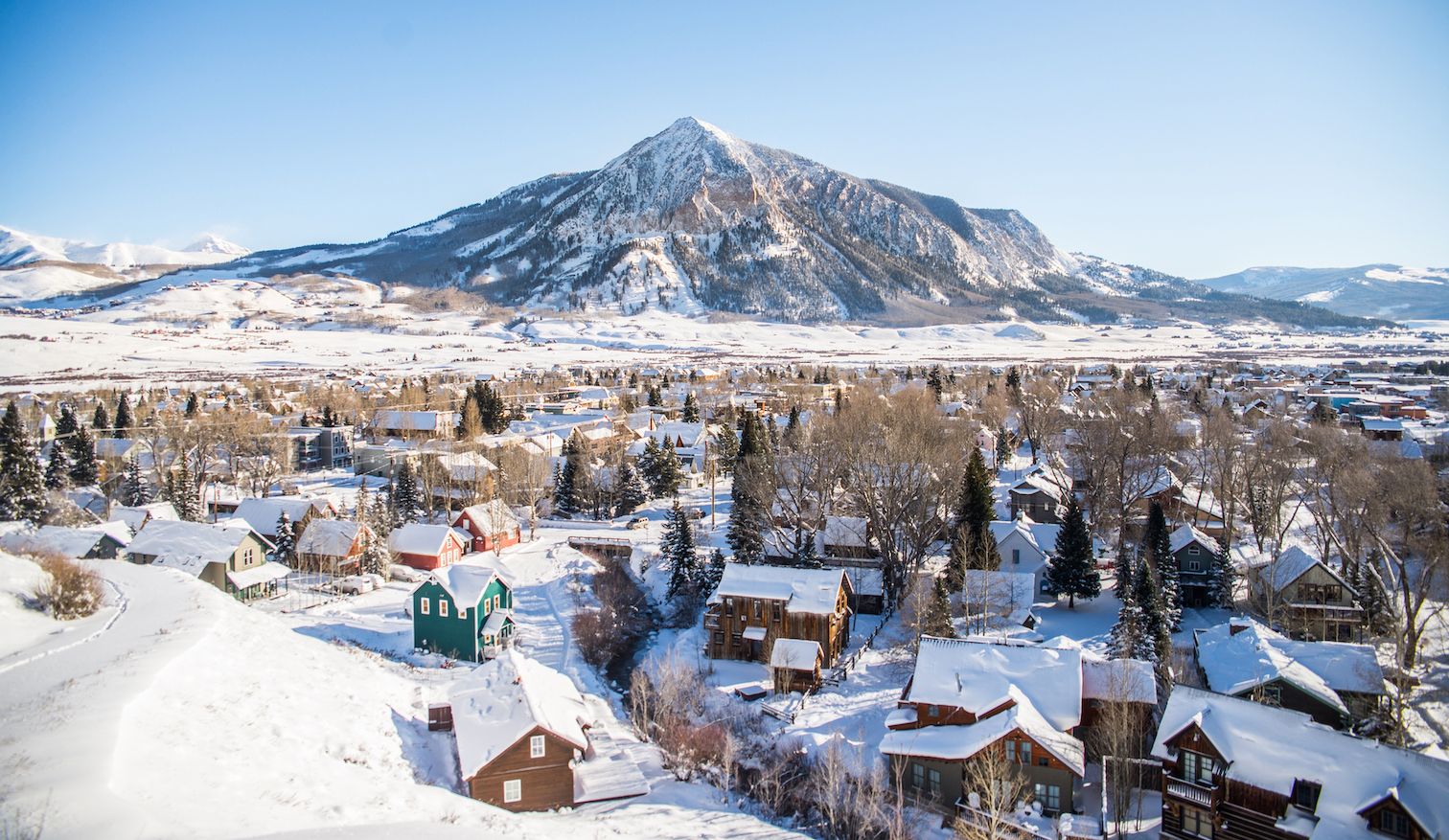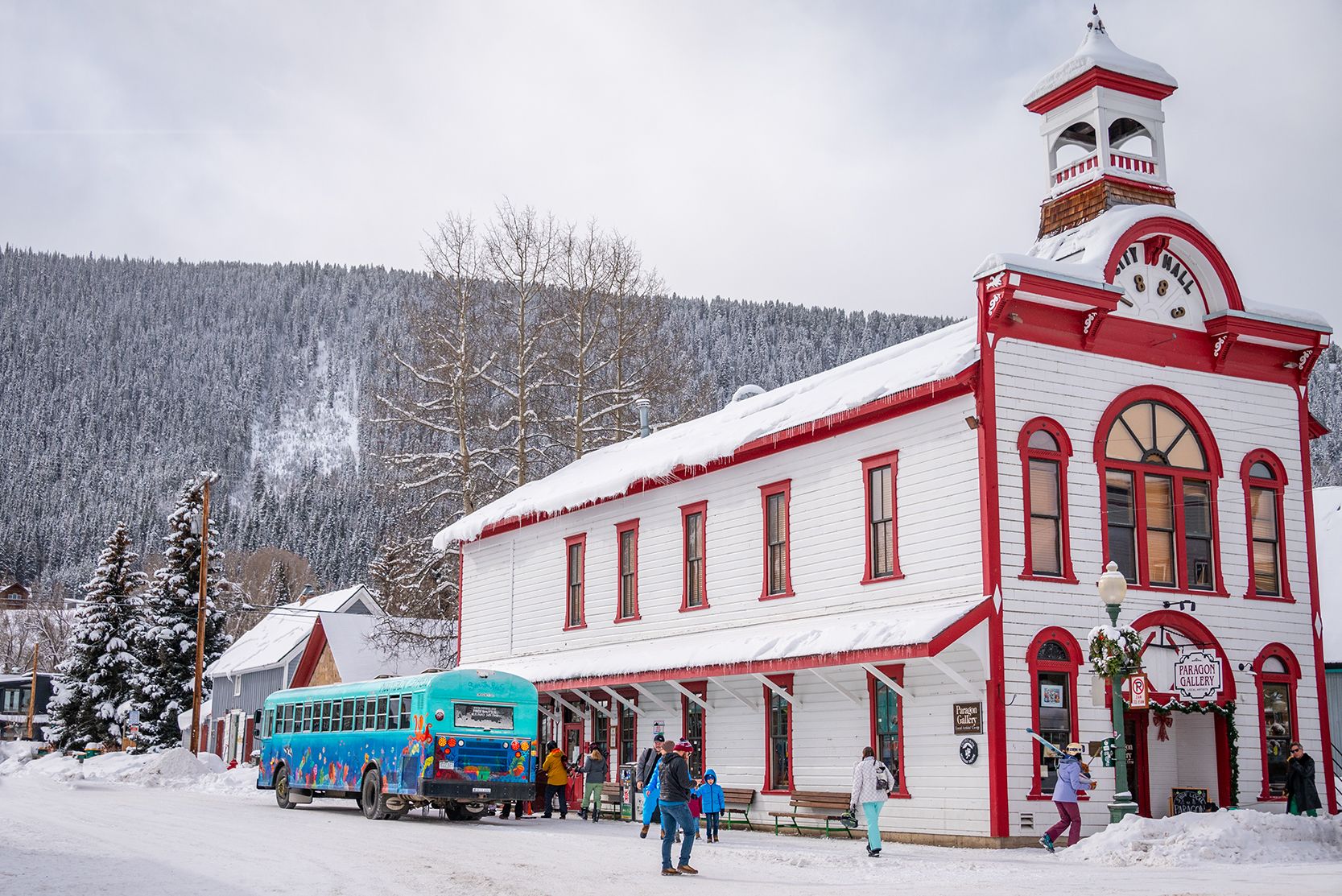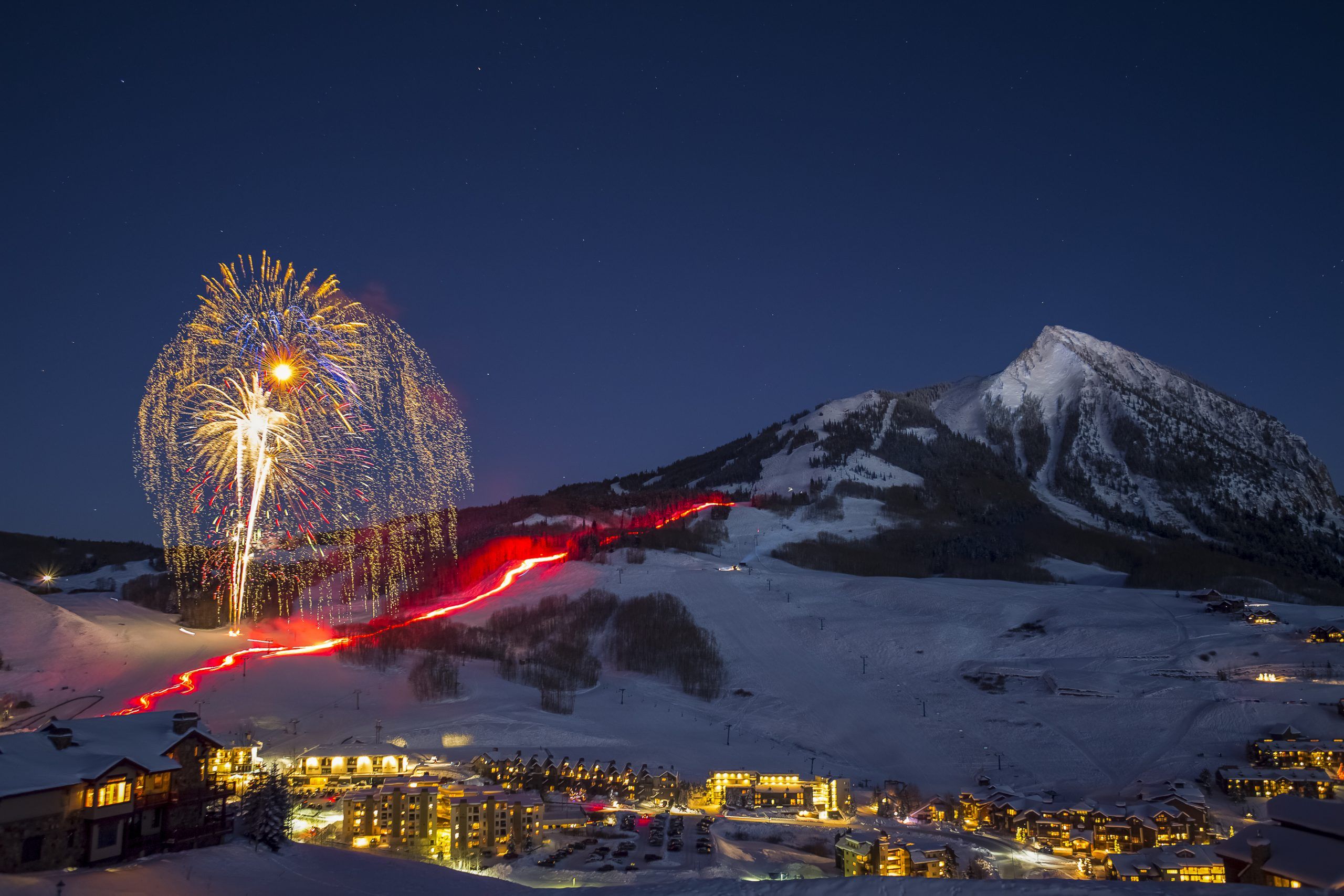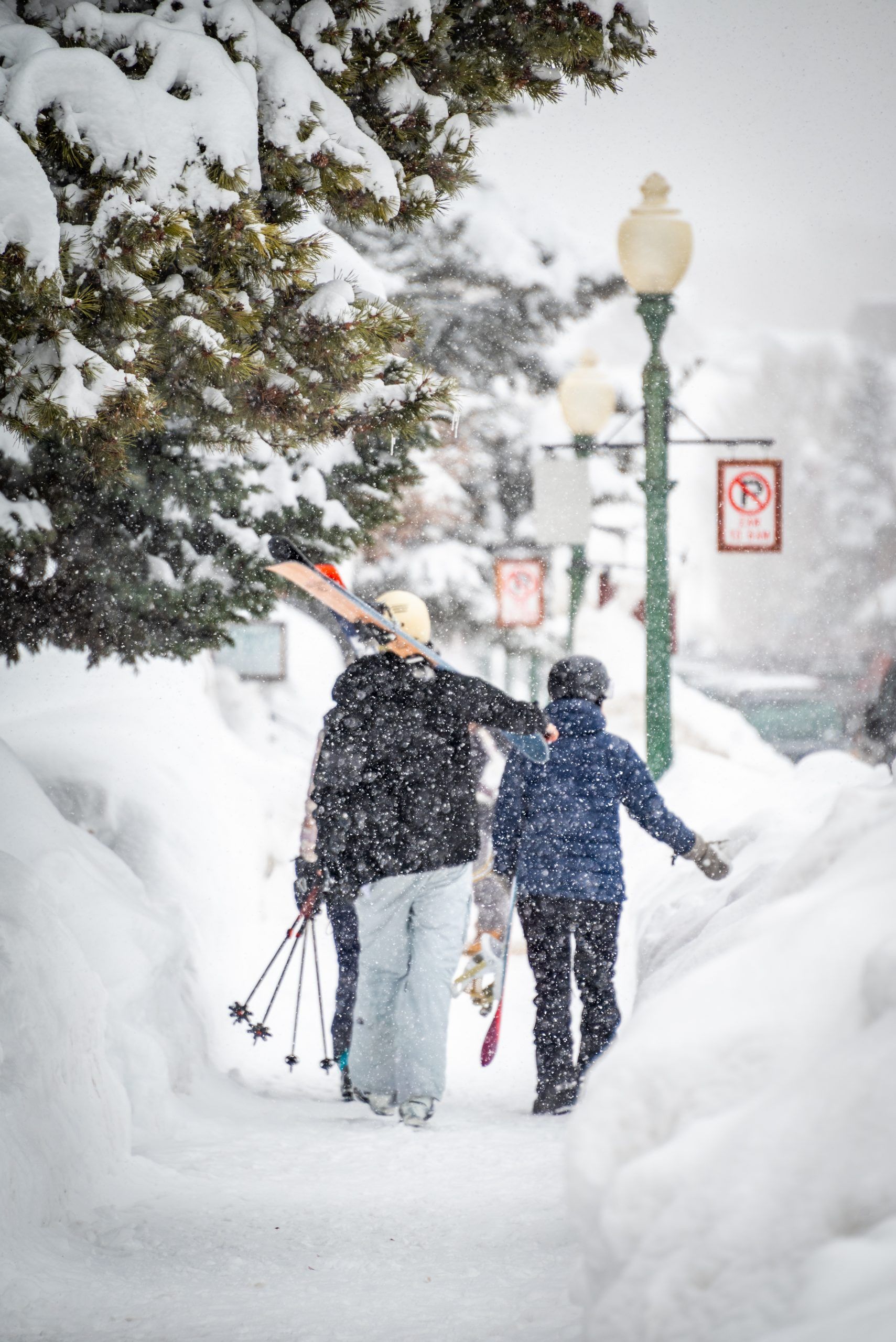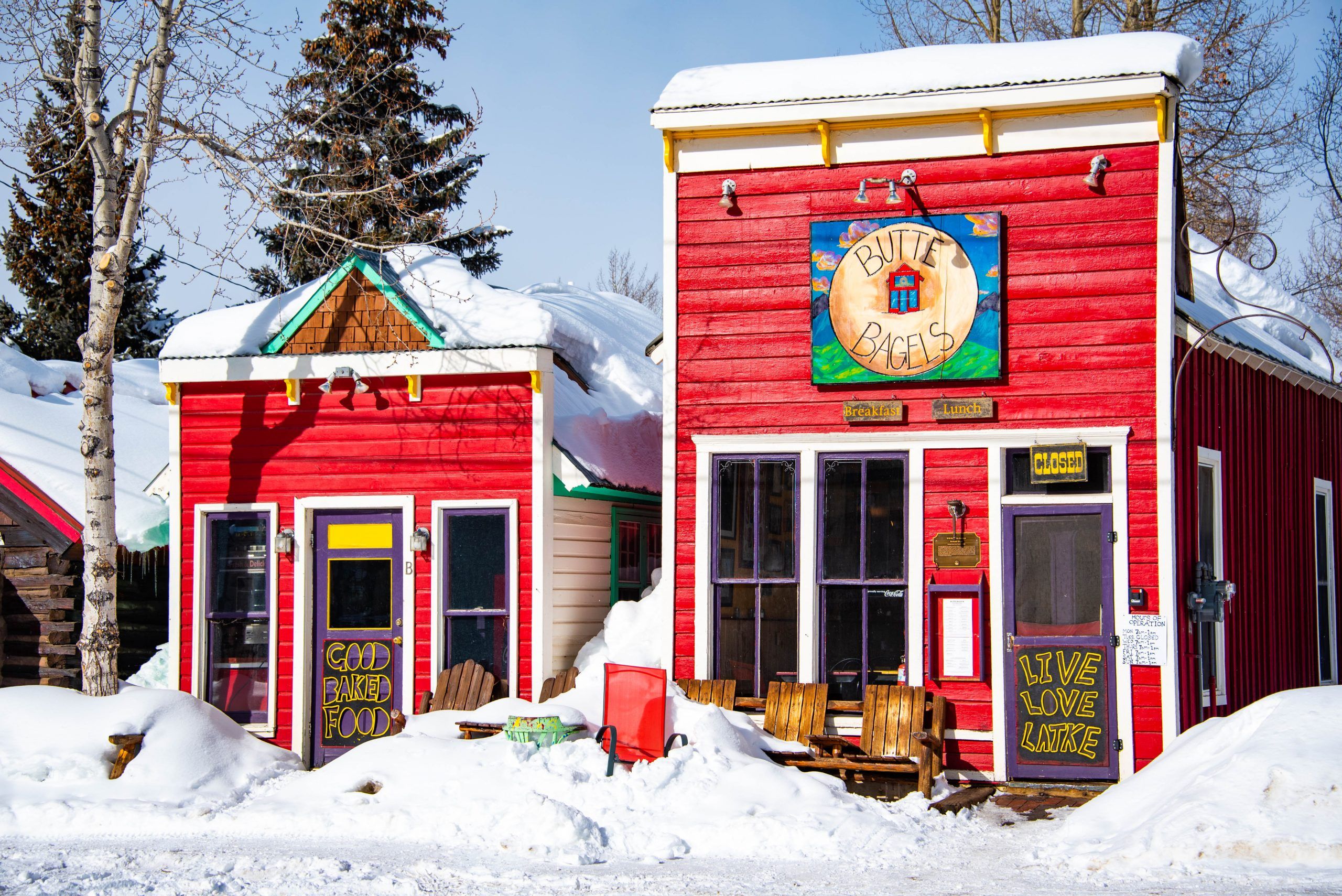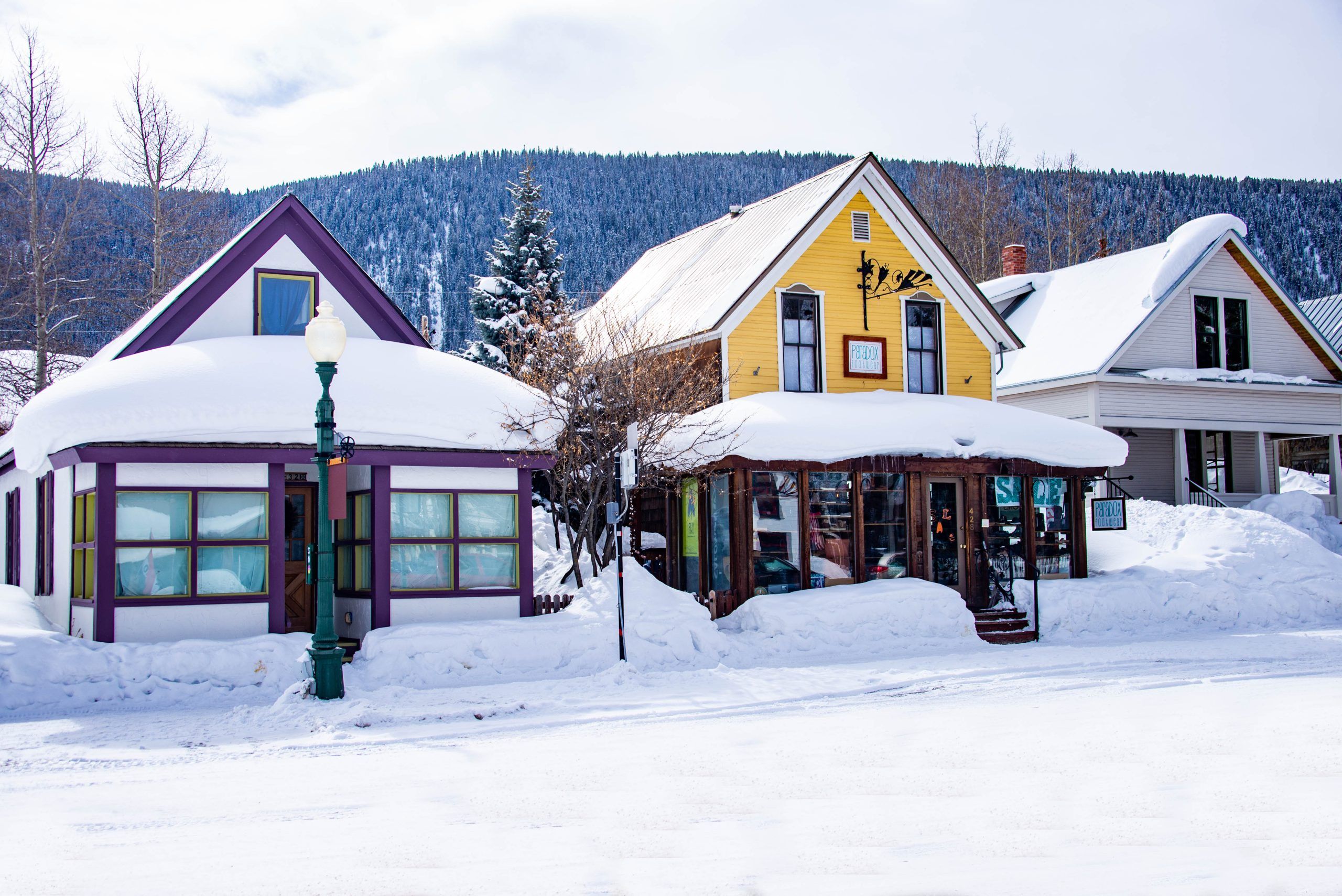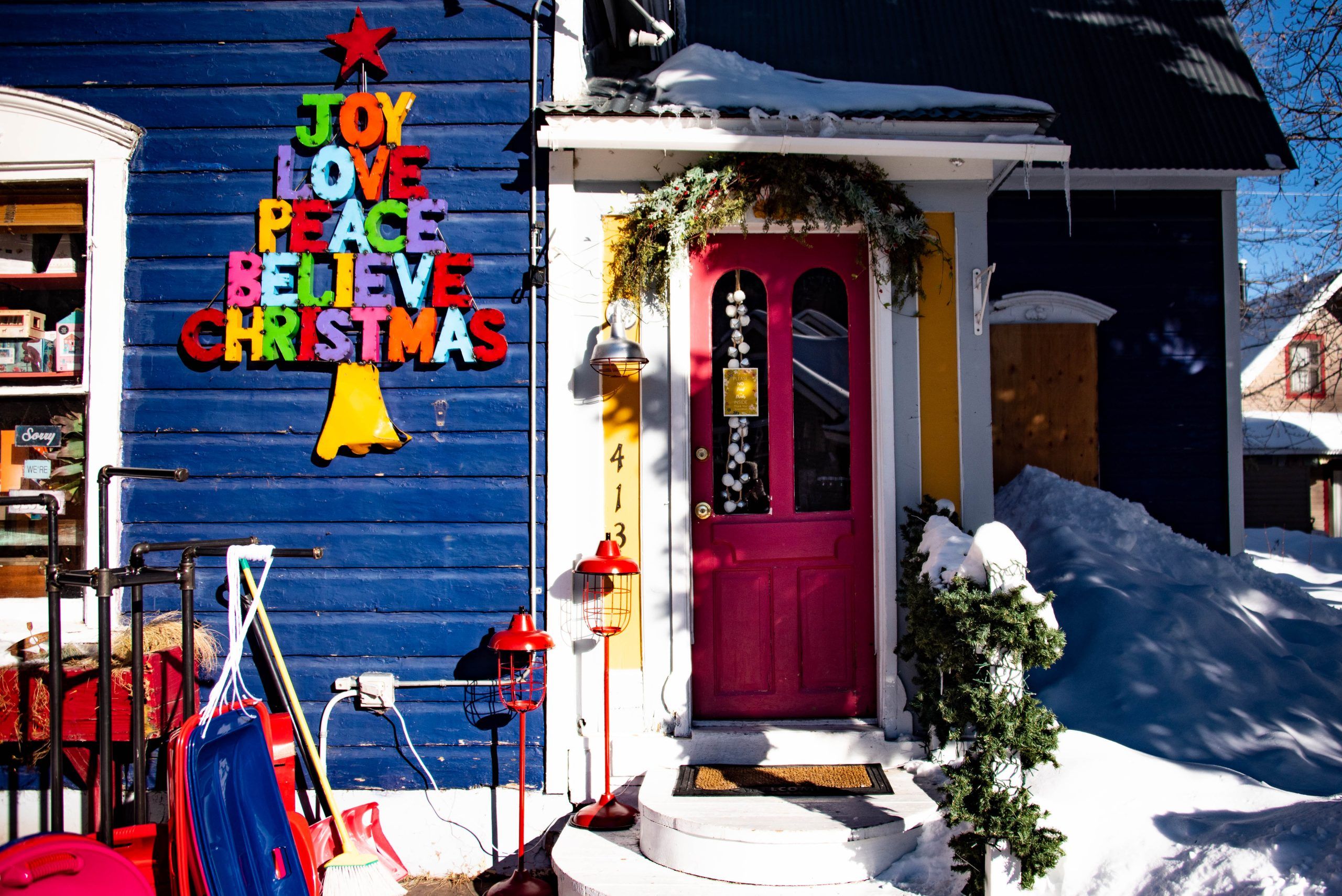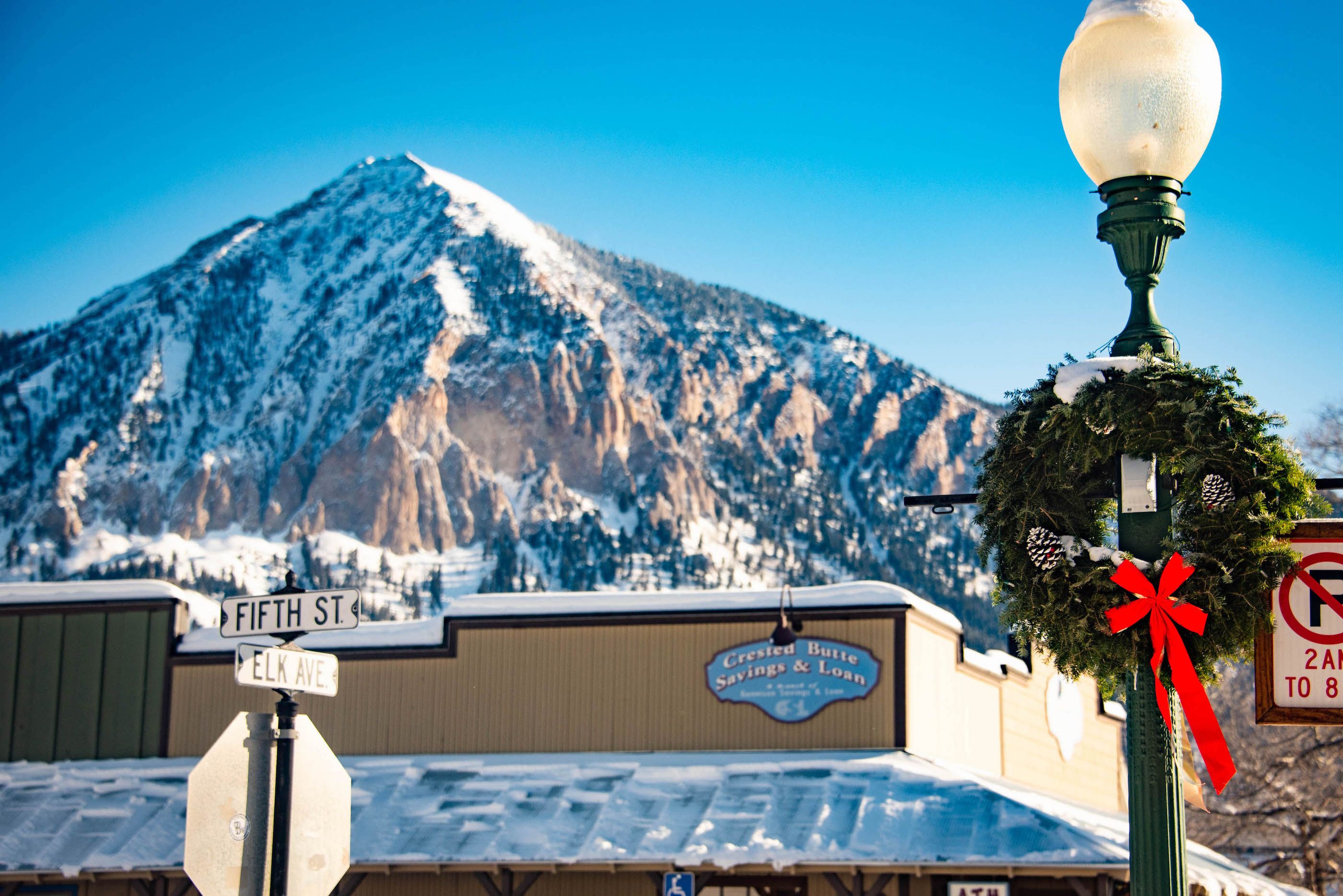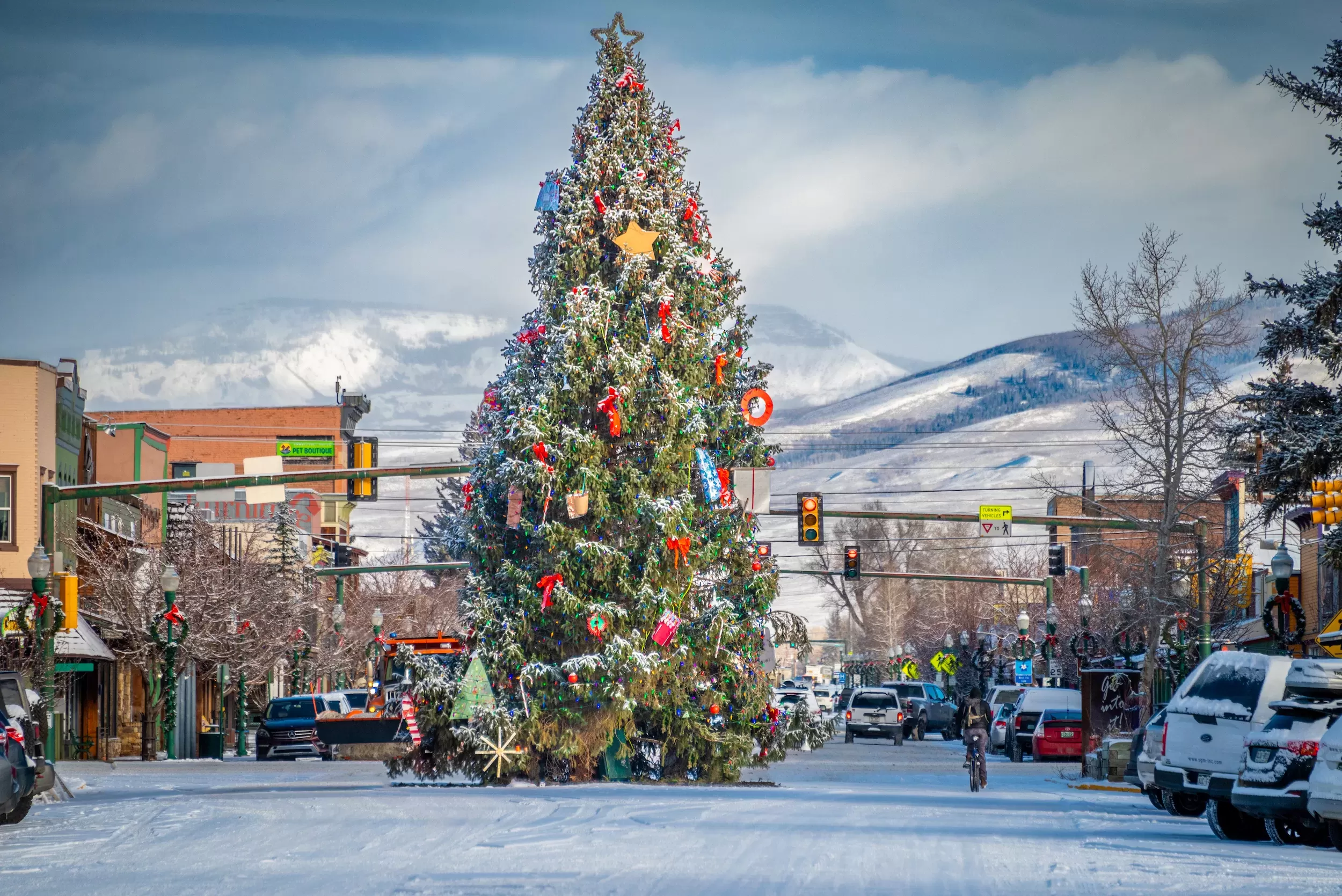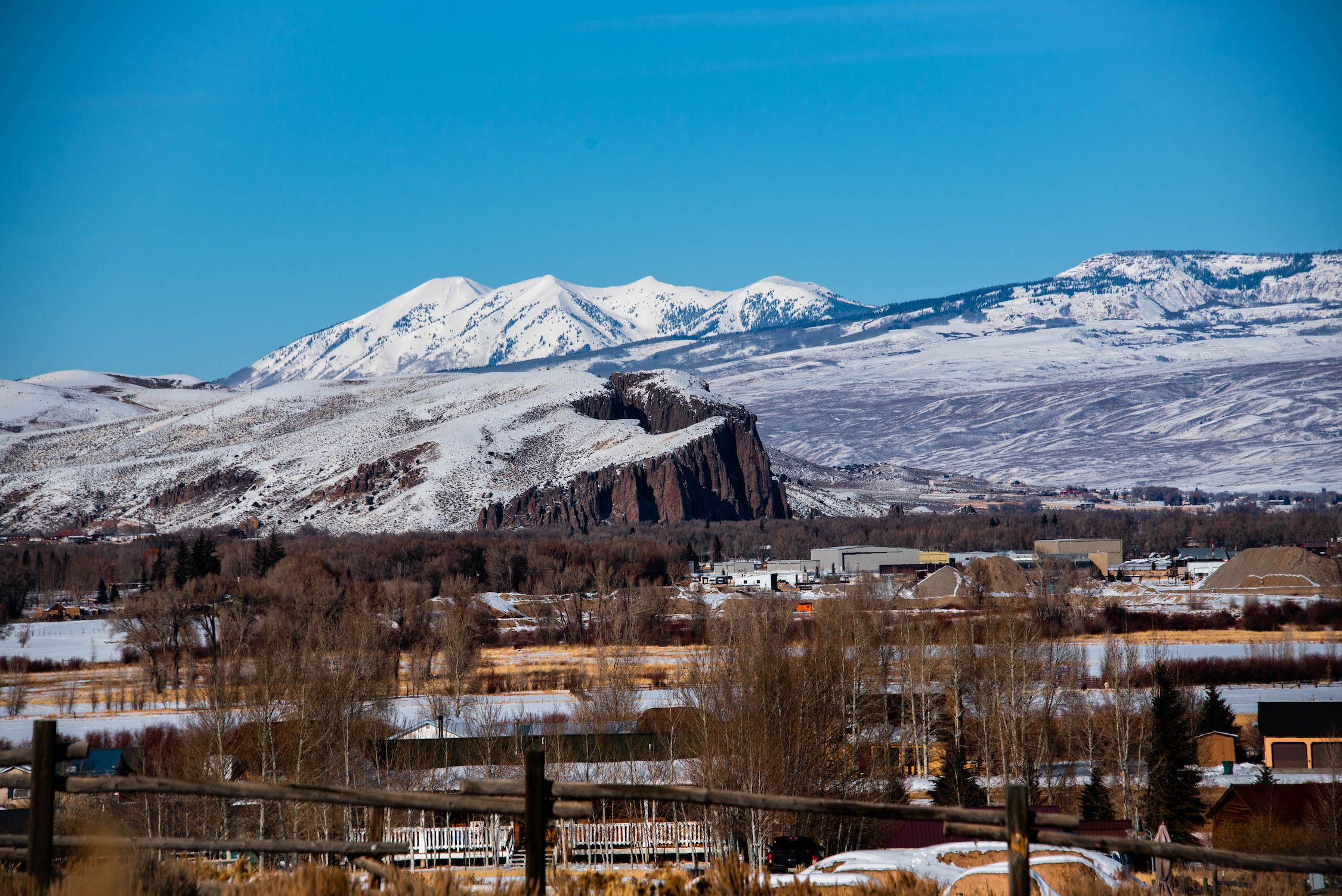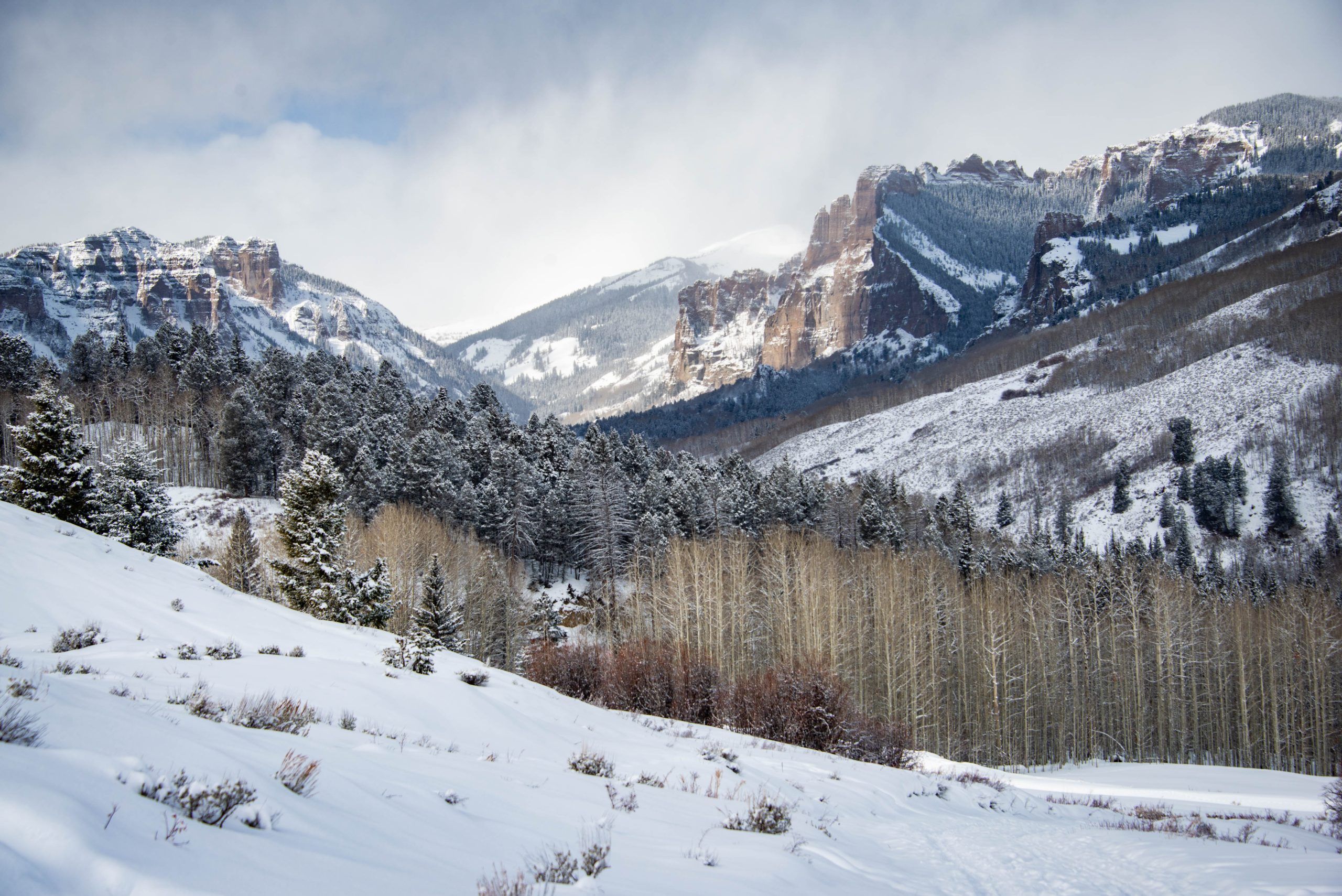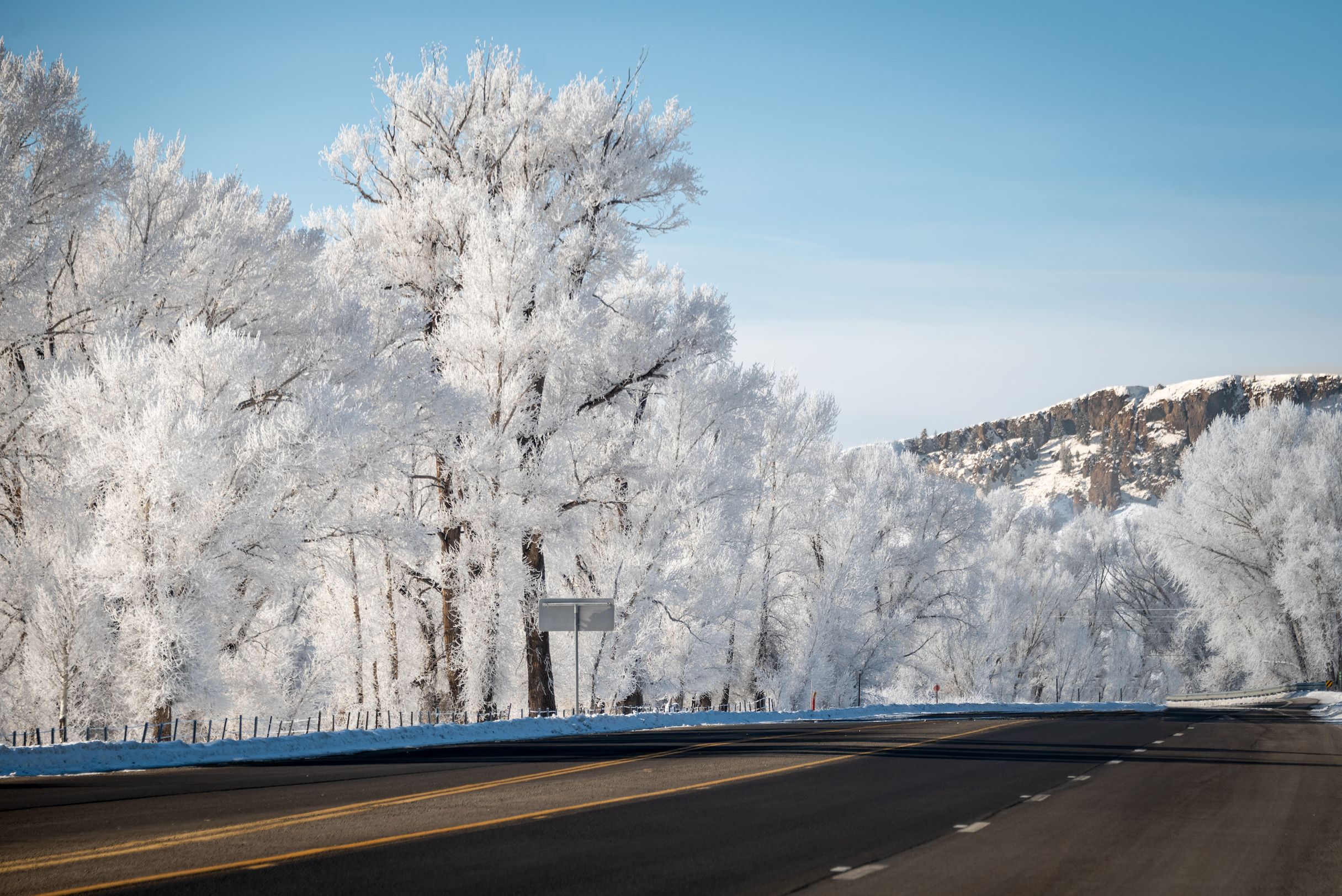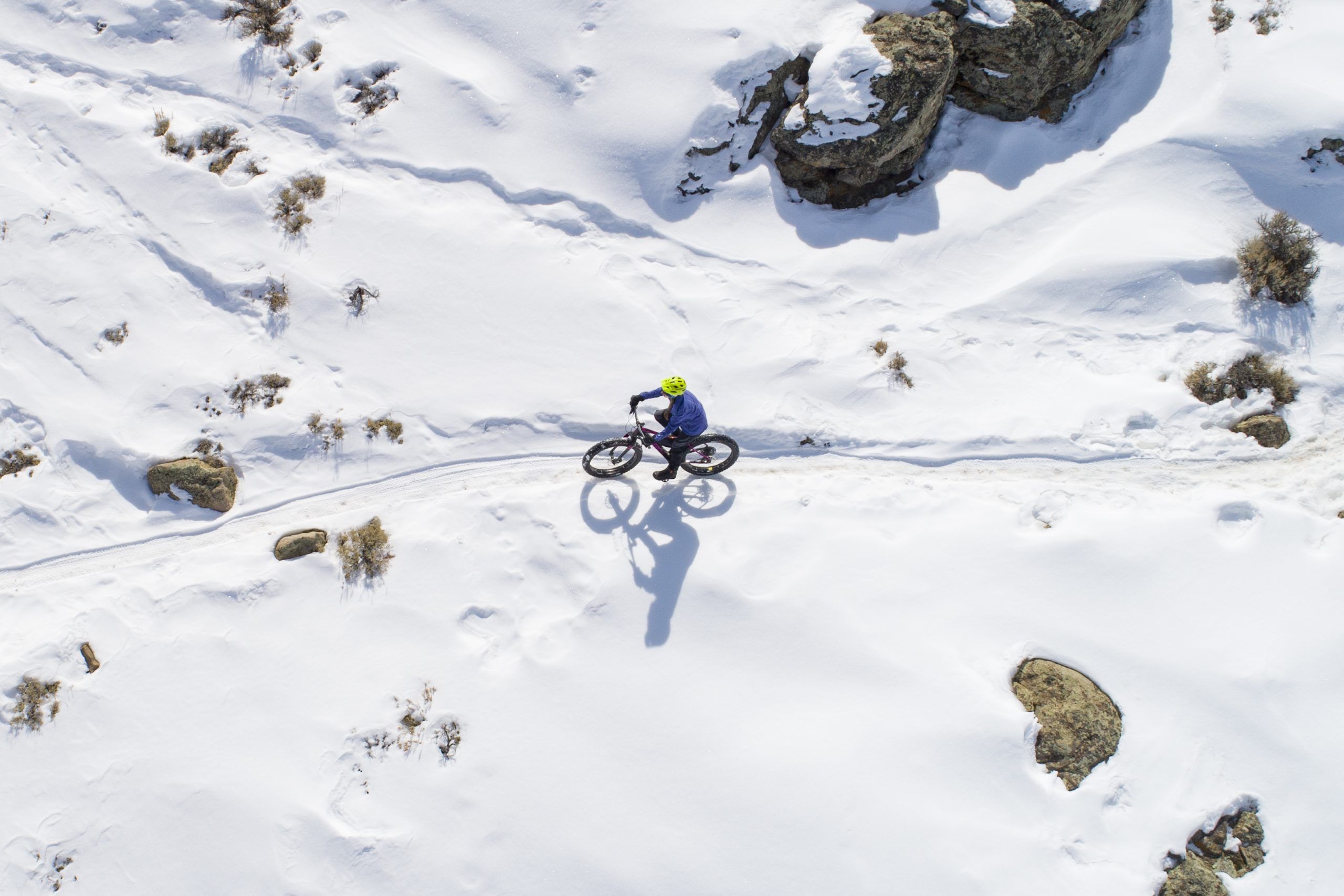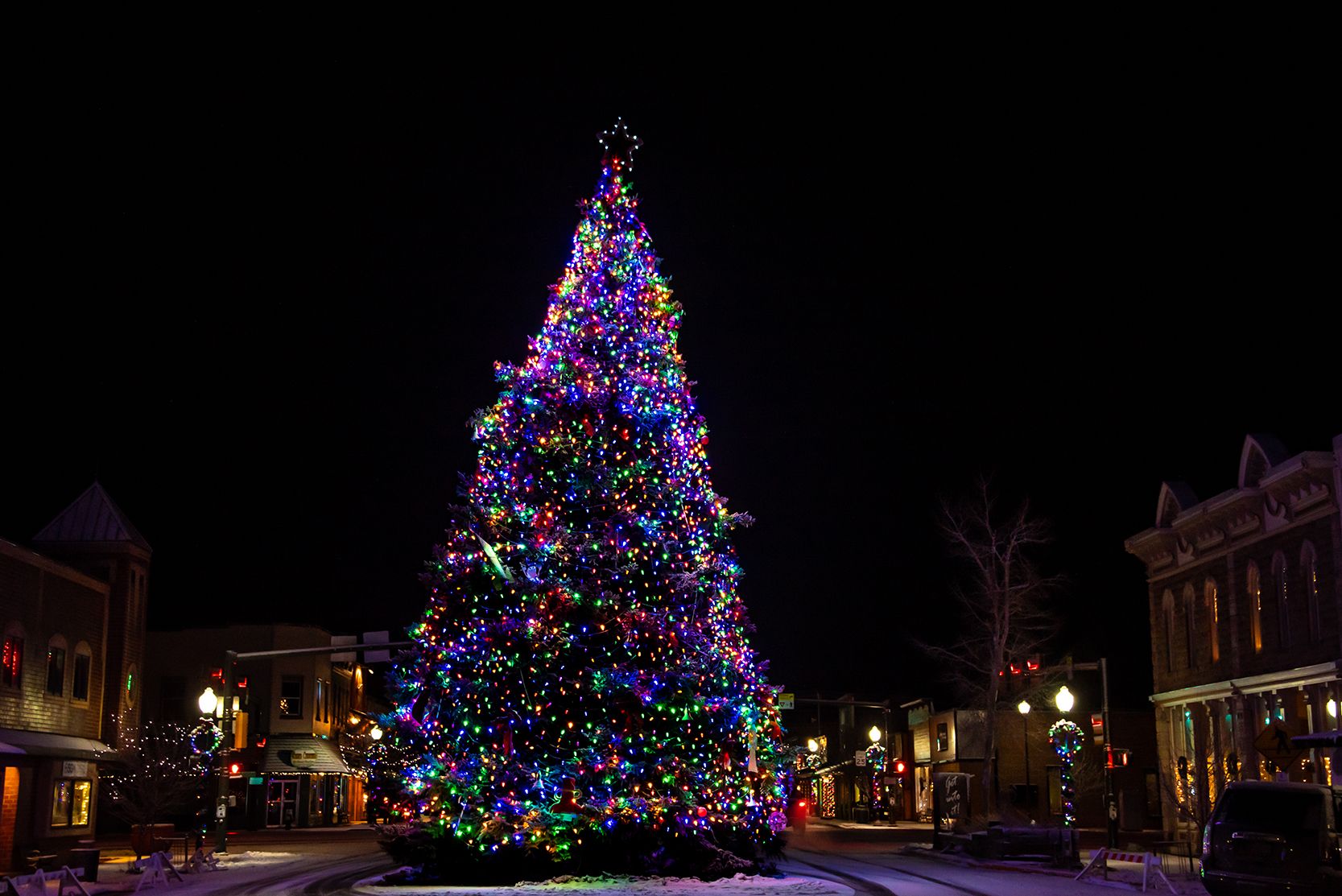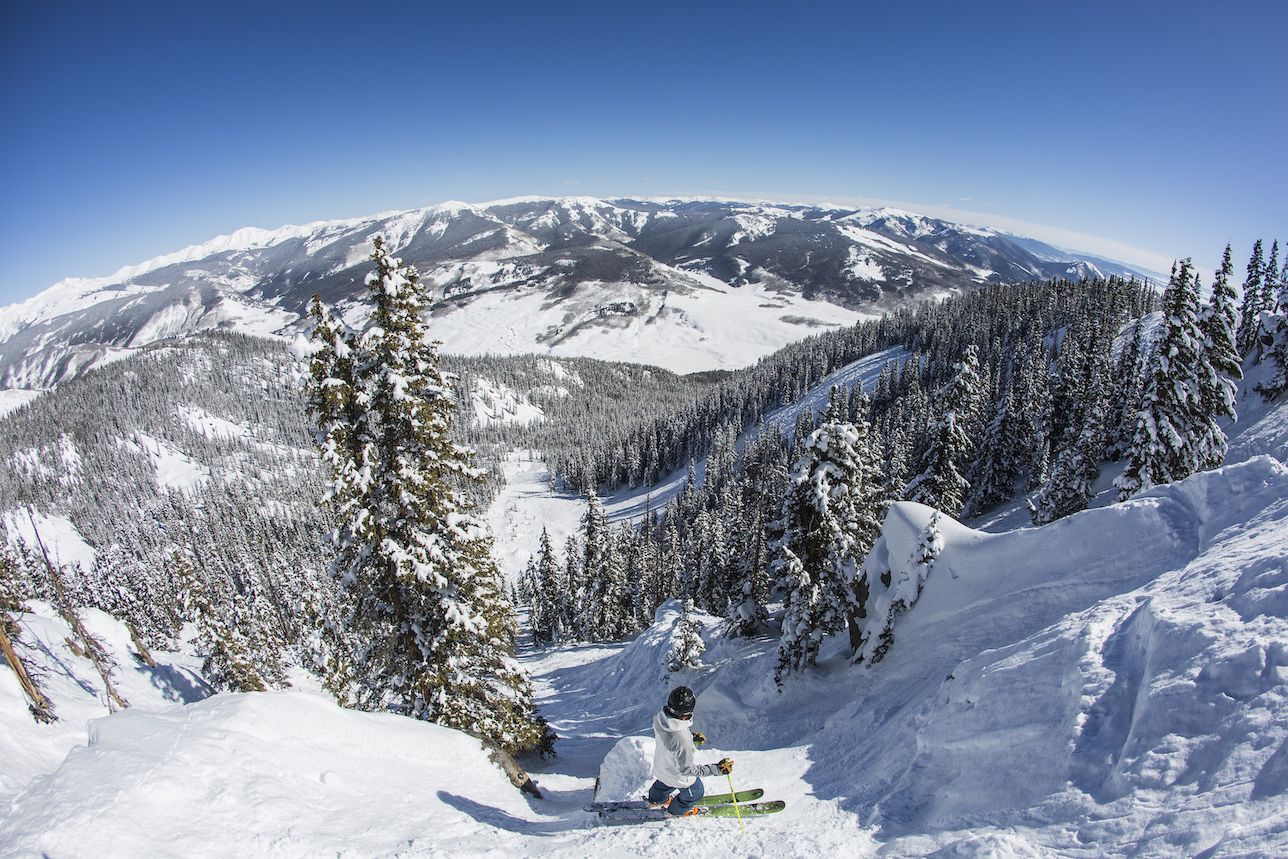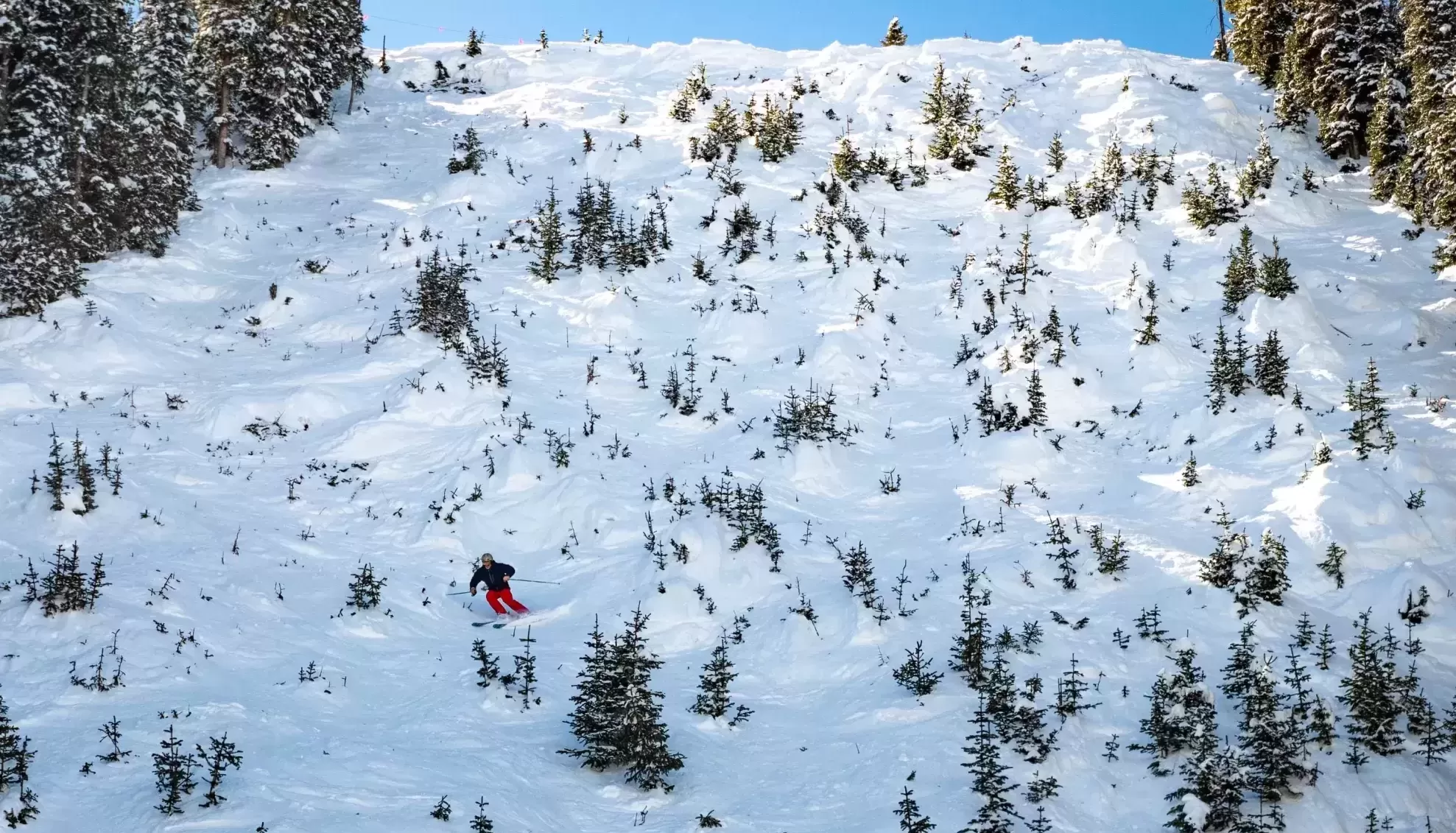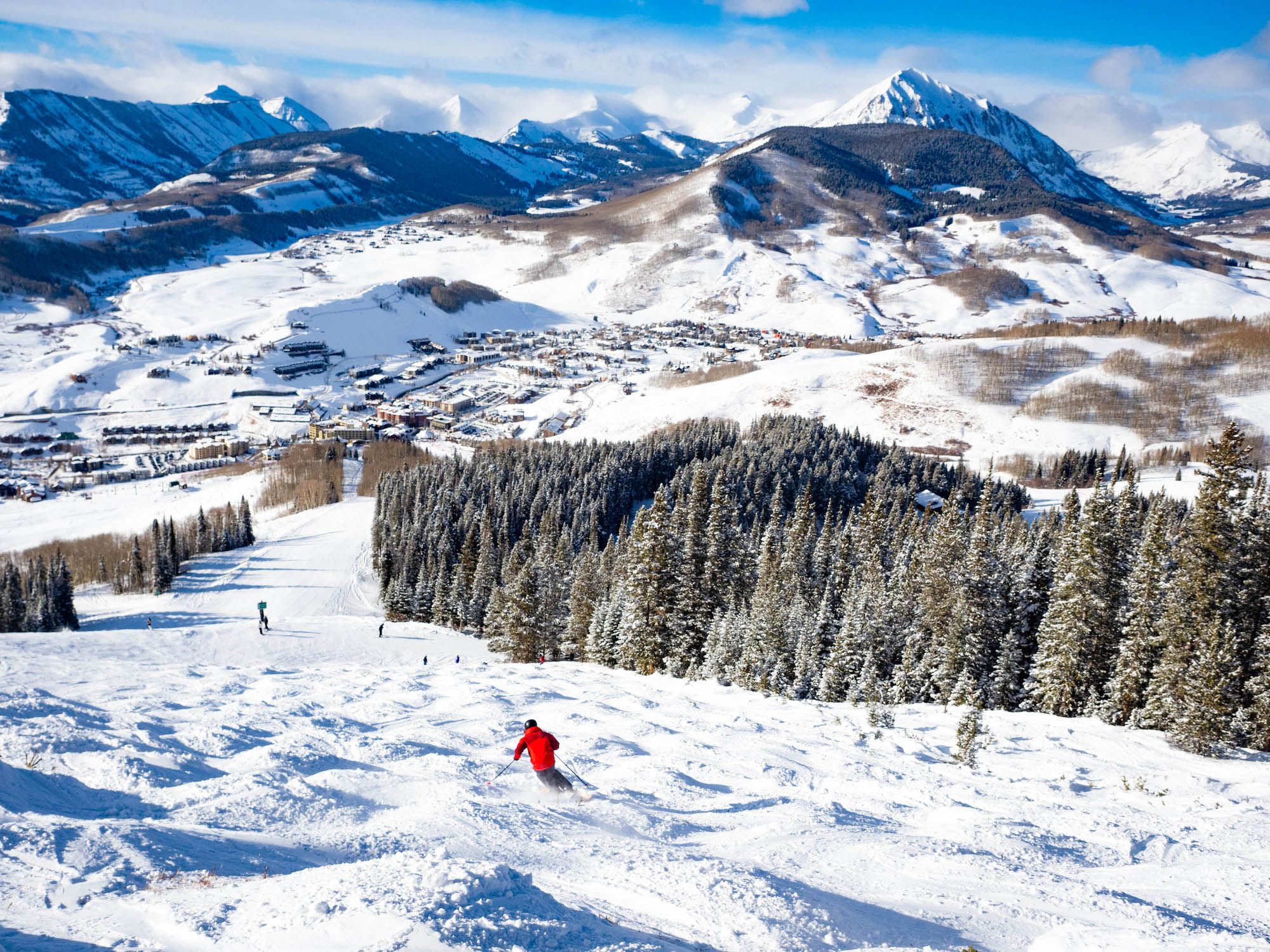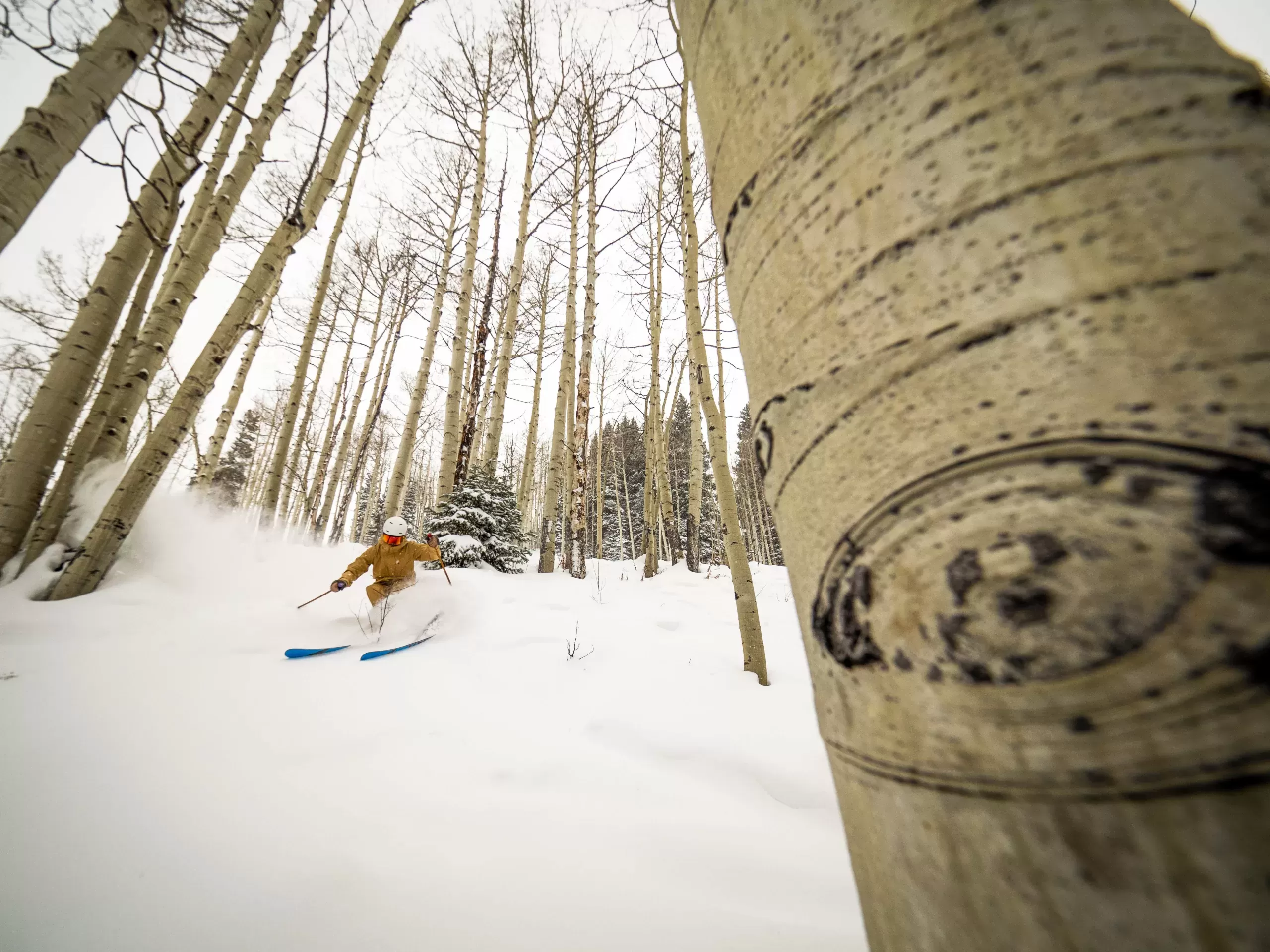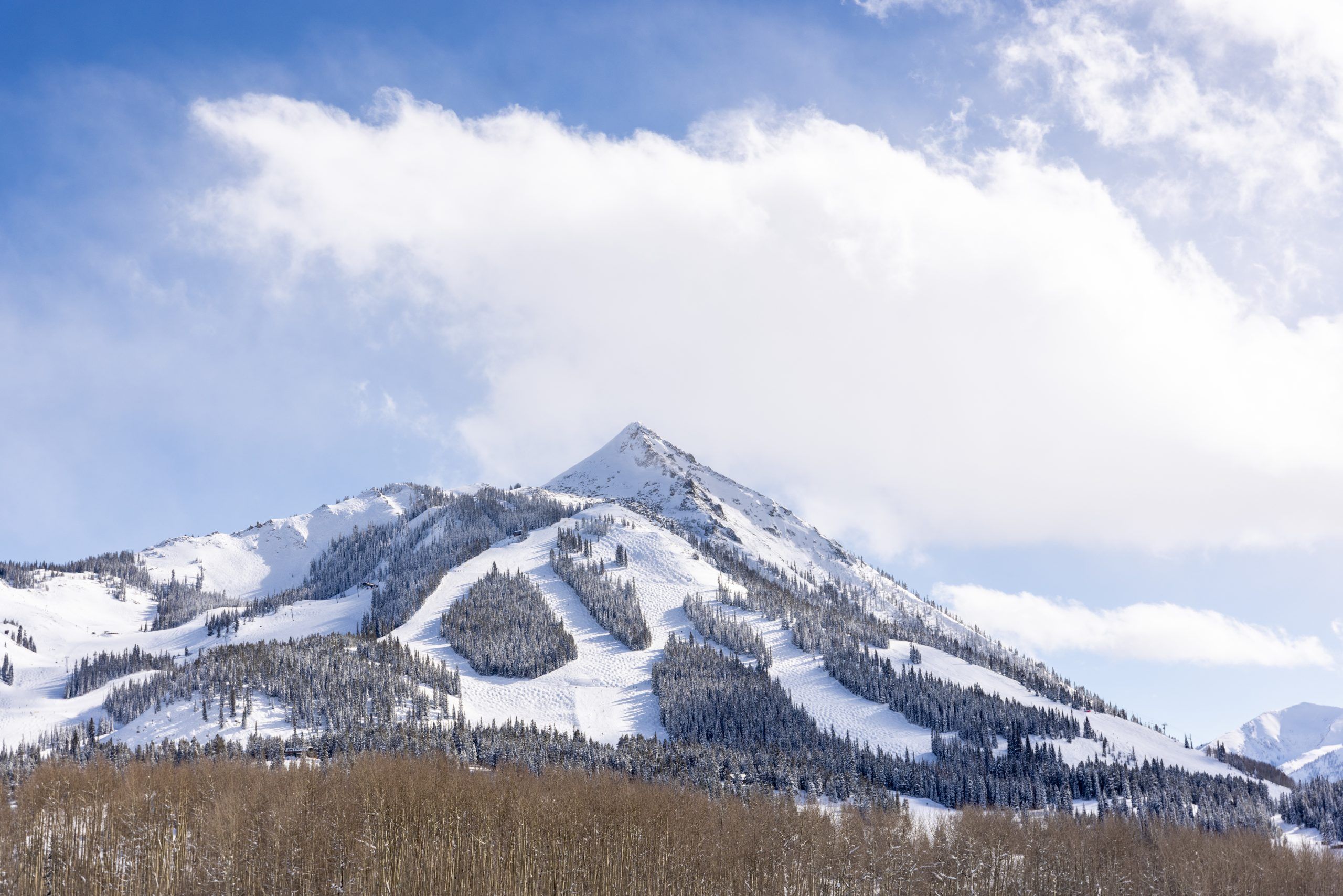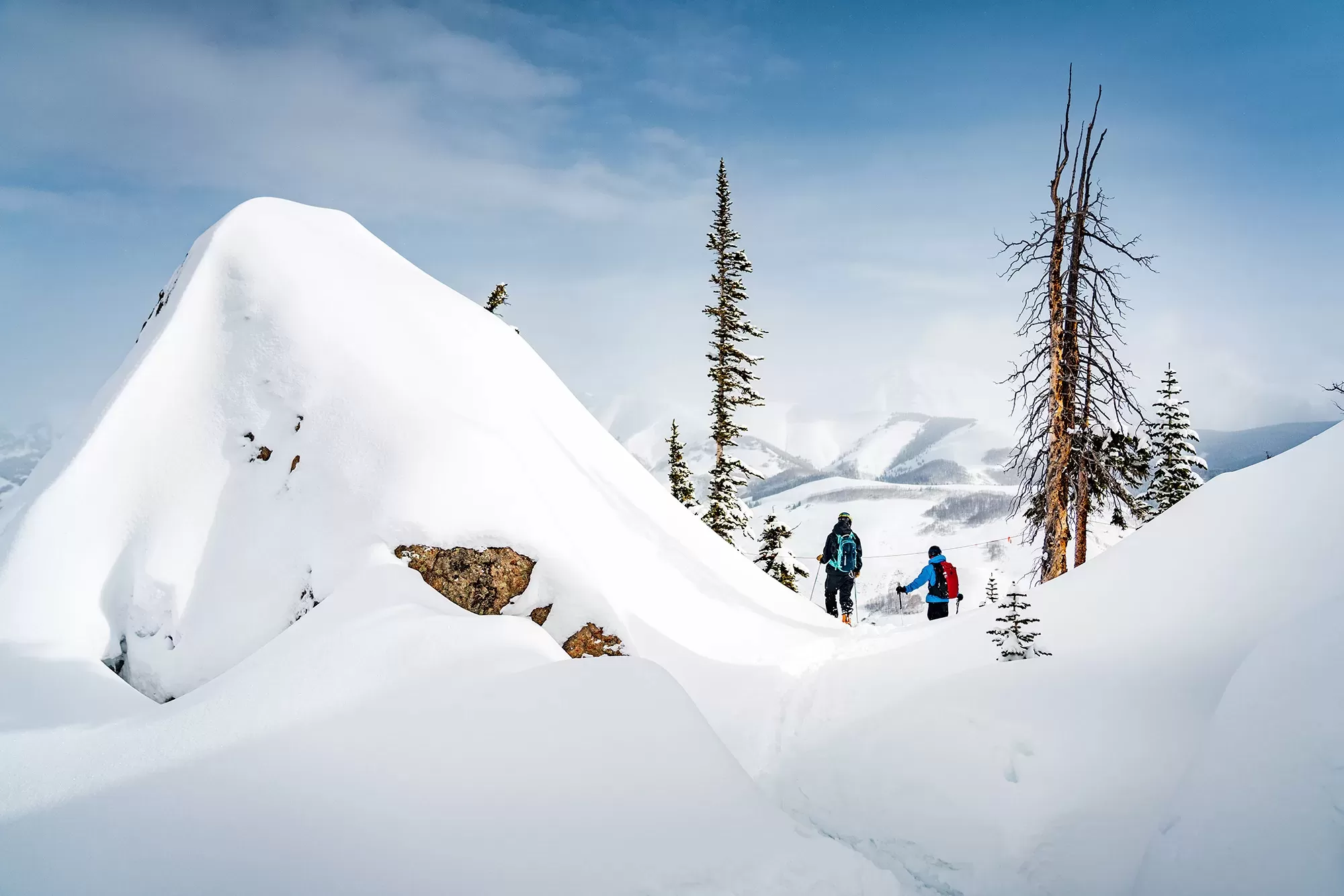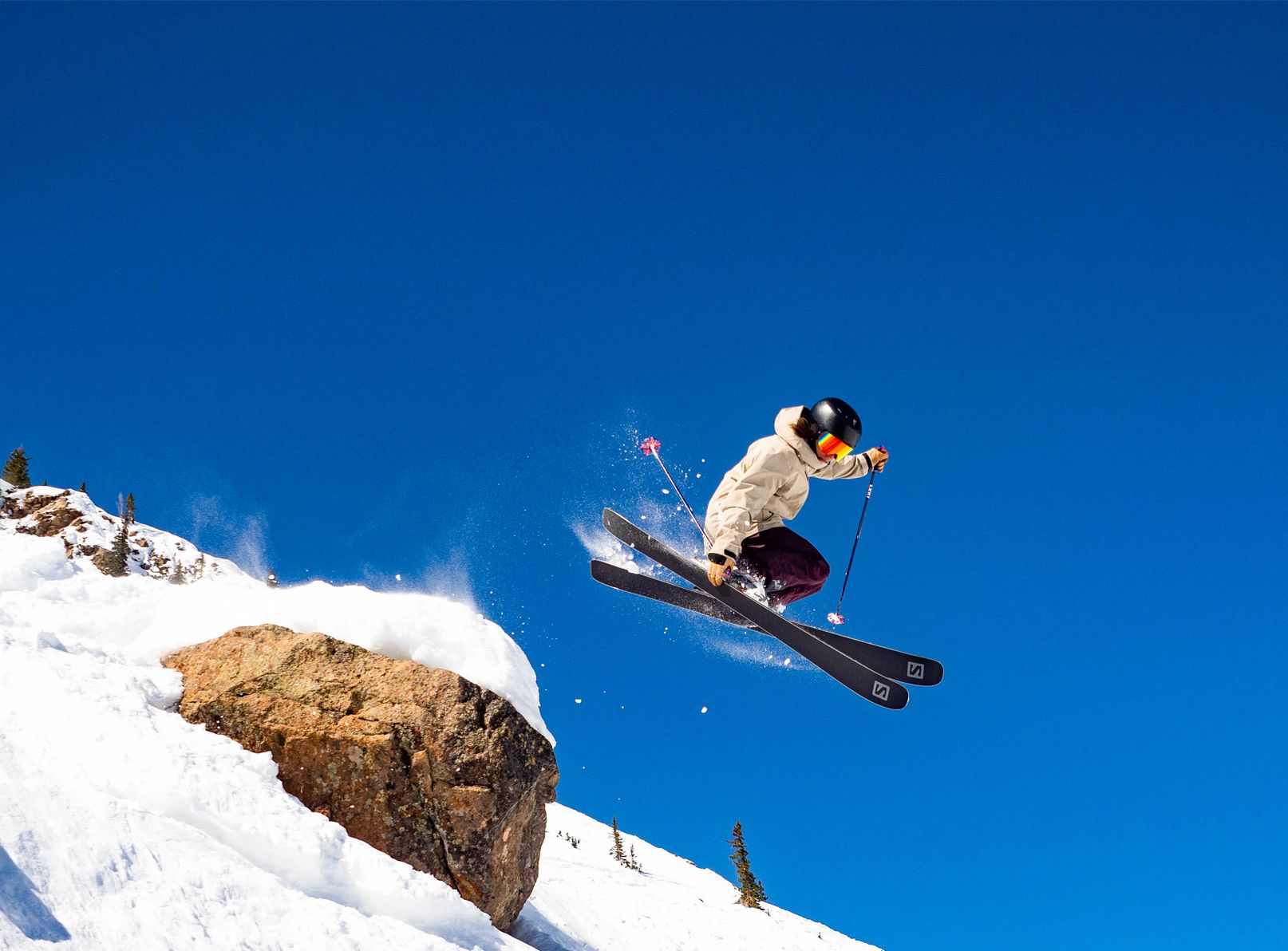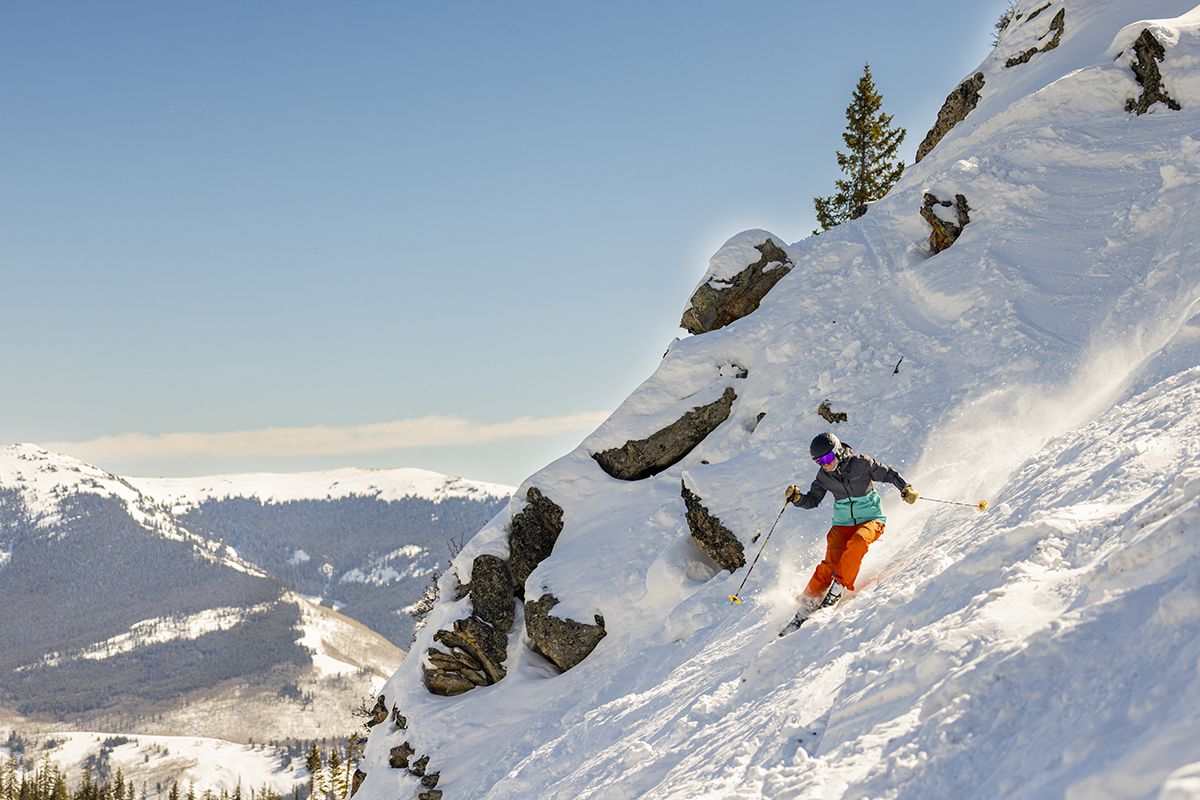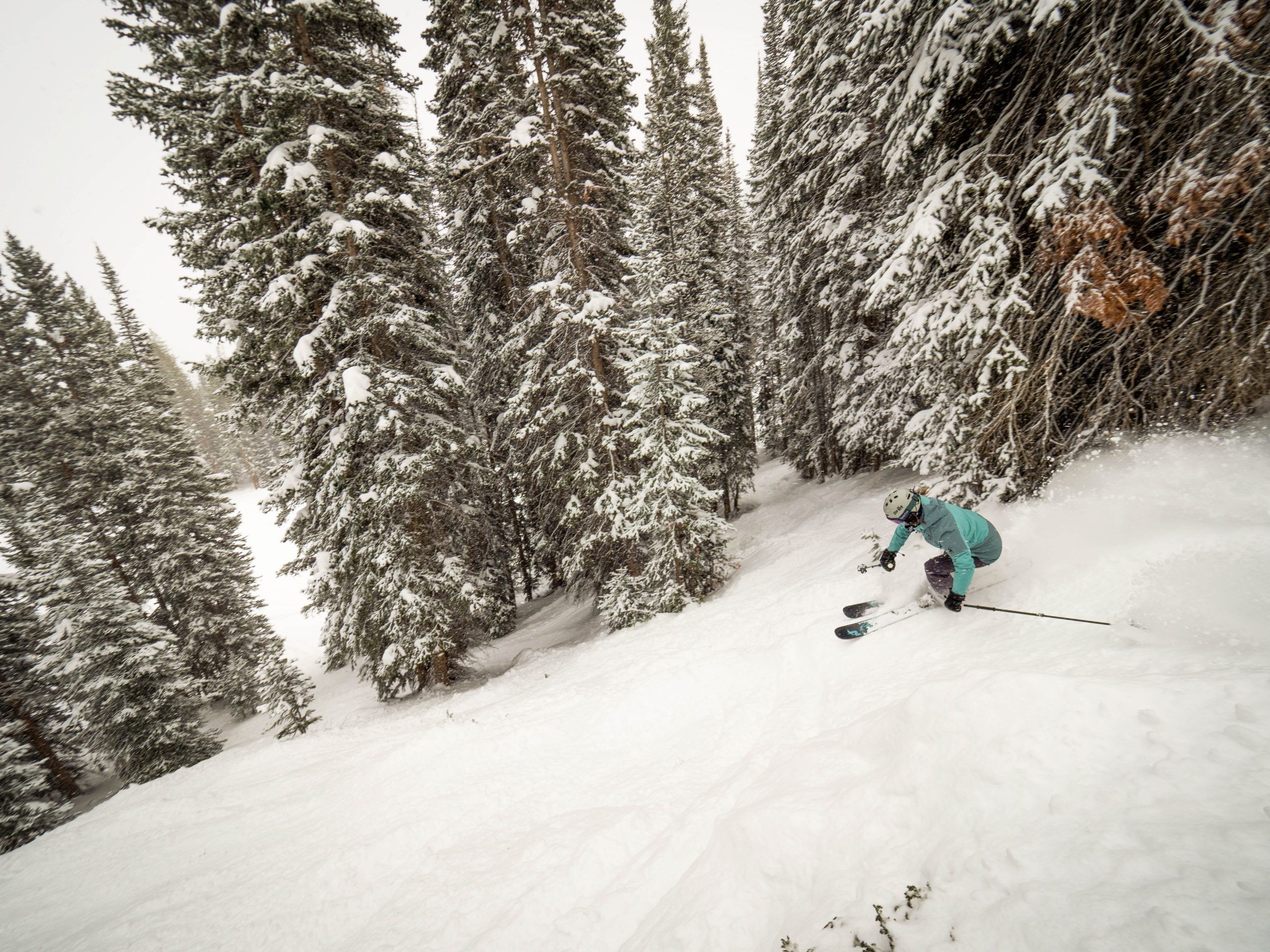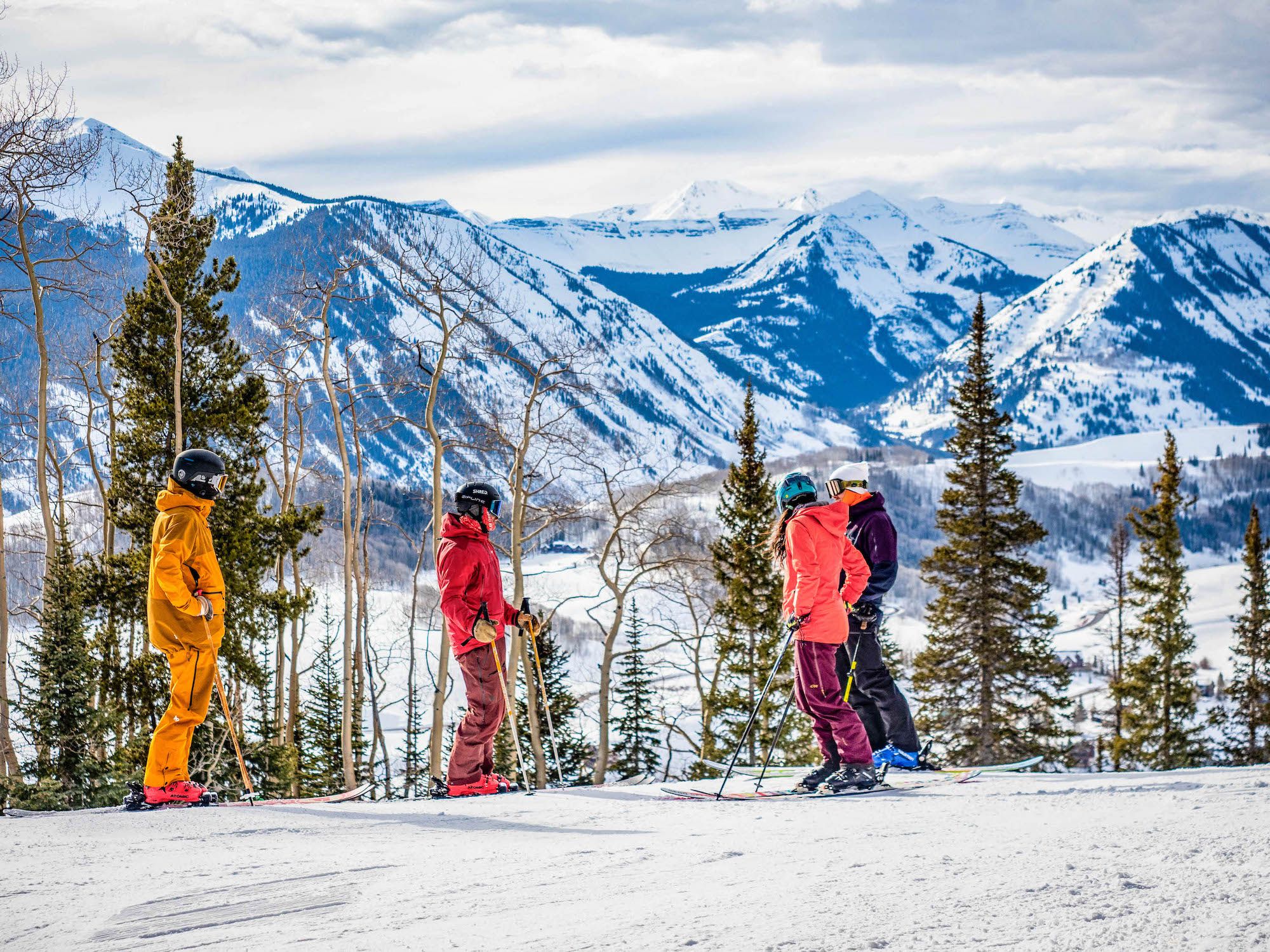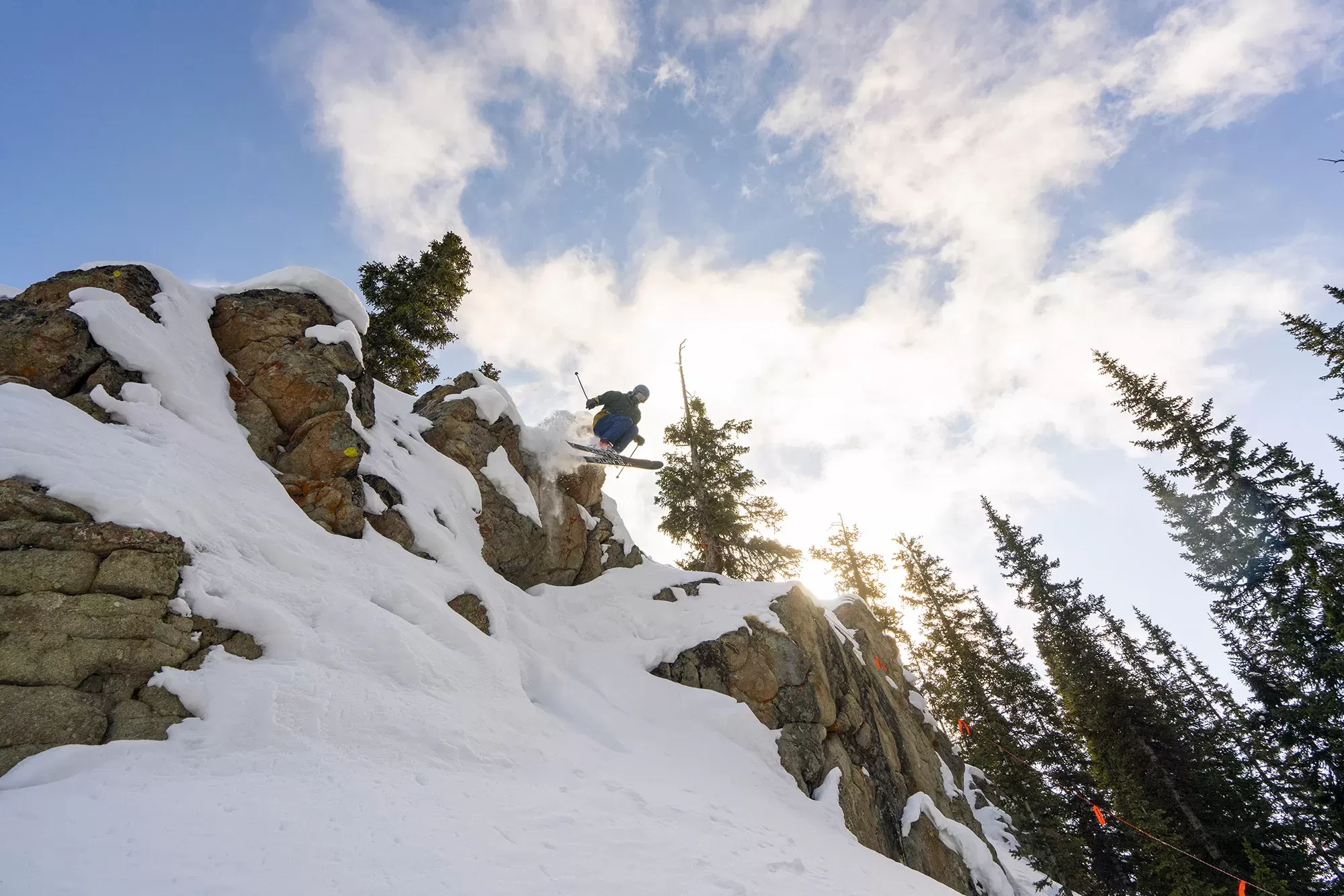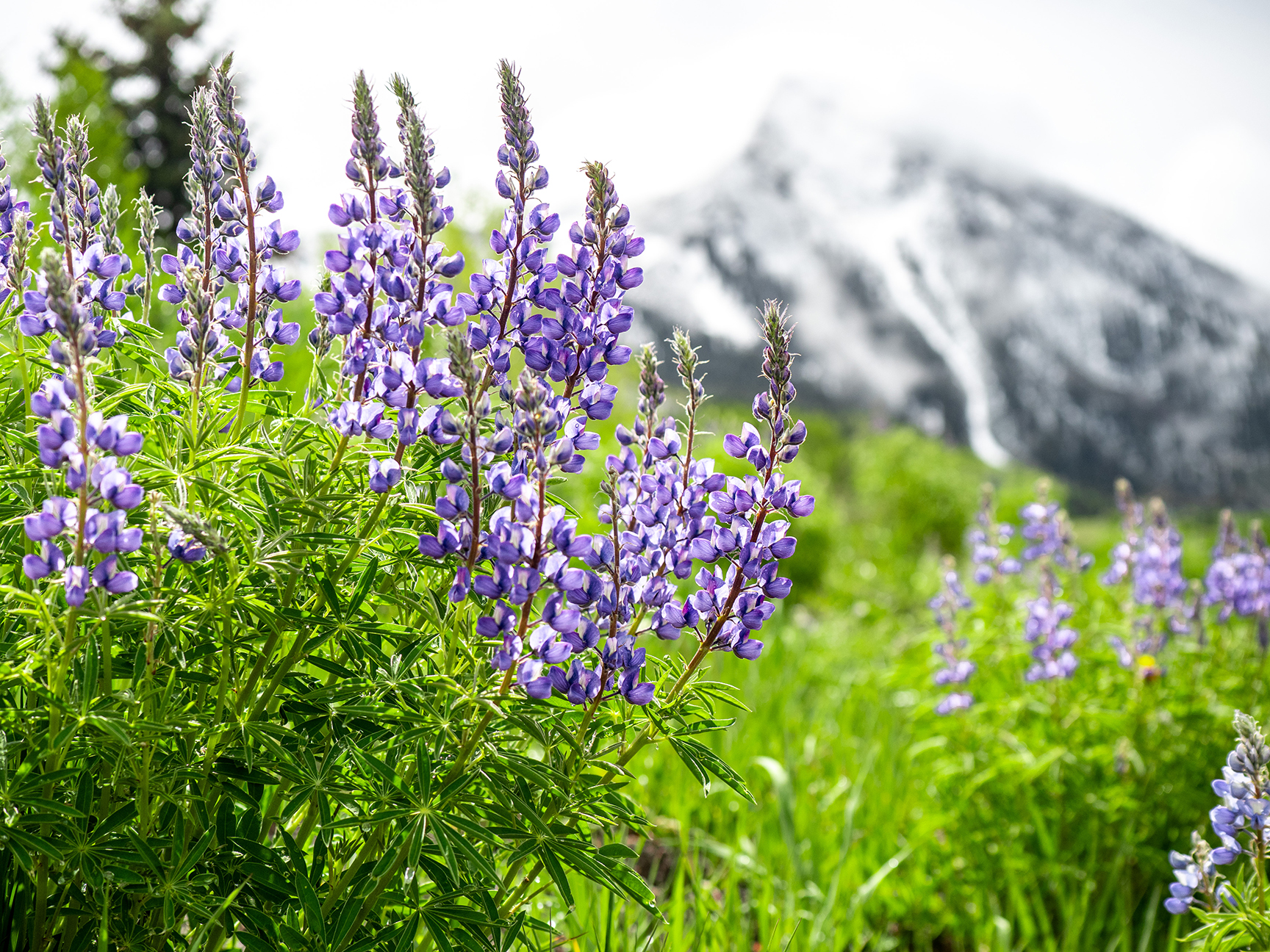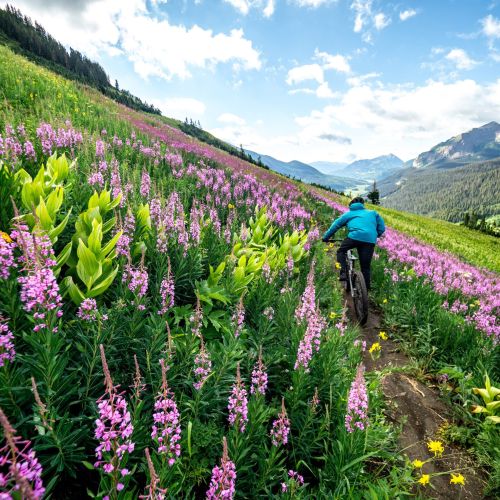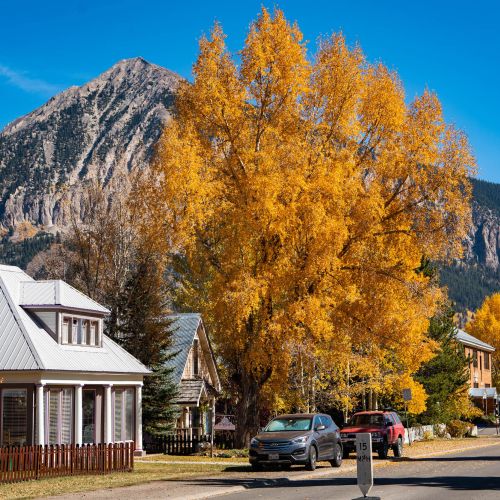Federal lands comprise 85% of the Gunnison Valley. YOUR trails, rivers and public lands will be OPEN as the snow melts, but personnel cuts at the Forest Service, Bureau of Land Management and Park Service mean all of us will need to keep stewardship top of mind this summer. Pack out all trash, and be extra careful with fire. Together, we can keep our backcountry beautiful!
Visit Crested Butte in winter
If you’re an adventurous traveler who enjoys winter sports and getting off the beaten path, visit Crested Butte in winter! If that sounds like you, keep reading. This guide will walk you through everything you need to know about winter in the Gunnison Valley. From holiday travel tips to winter weather advisories, we’ve got you covered. We’ve included plenty of winter photos to show how magical this place looks when it’s covered in snow. We’ve included winter travel tips for both Gunnison and Crested Butte, since you’ll likely spend time in both places while you’re here.
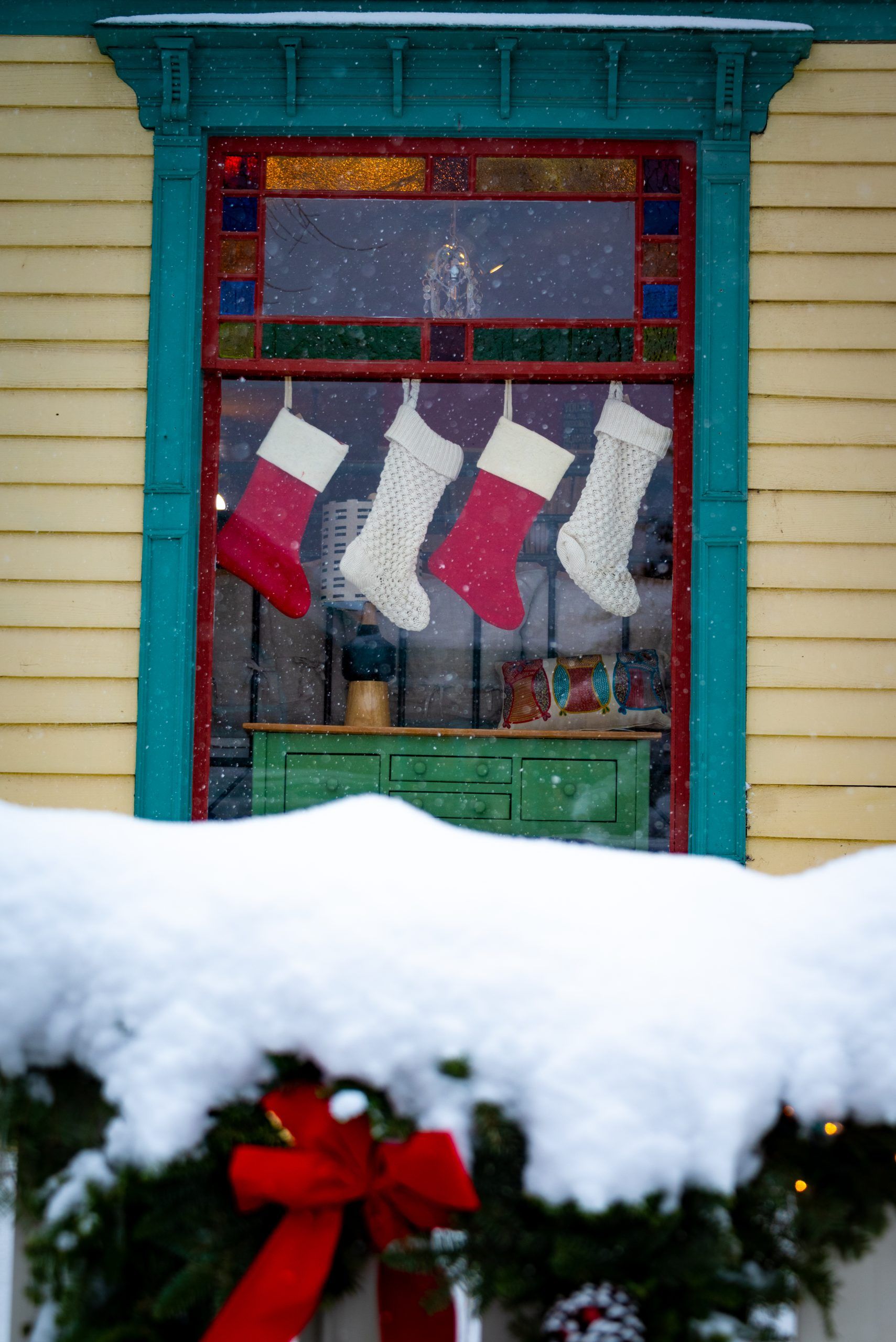
Spending the holidays in the Gunnison Valley
Is Crested Butte open on Christmas?
Although some businesses close for major holidays like Christmas Day and New Year’s Day, Crested Butte Mountain Resort and most tourism-related businesses remain fully operational.
Along with spring break, the weeks surrounding Christmas and the New Year are the busiest weeks to visit Crested Butte in winter. The long weekends of Presidents’ Day and Martin Luther King, Jr. Day also attract high numbers of visitors.
If possible, book your trip on weekdays and non-holiday dates to save money on lodging and avoid the holiday rush. No matter what time of year you plan your visit, reservations are always recommended.
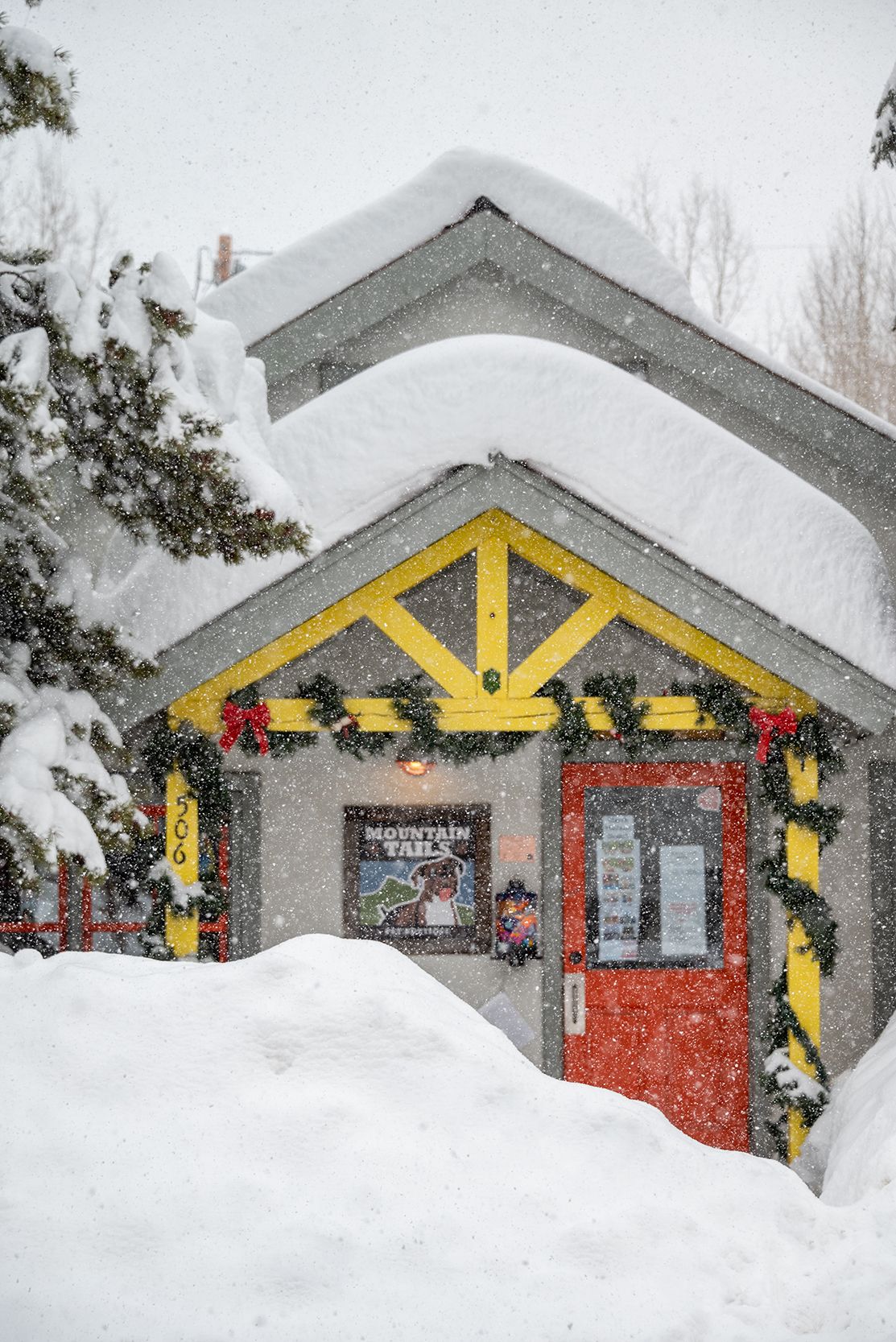
Winter in downtown Crested Butte
Crested Butte Mountain Resort, which opened in 1960, pulled the town of Crested Butte out of its mining slump and kickstarted the tourism industry in the Gunnison Valley. Crested Butte remains true to its quaint coal-mining roots, with historic wooden buildings lining the main drag. Once bunkhouses and drugstores, the buildings now house restaurants, taverns, and bed-and-breakfasts.
Winter in downtown Gunnison
The city of Gunnison takes holiday decorating seriously. Colorful lights cover the trees along Main Street. A massive live Christmas tree takes over the street at the intersection of Highway 50 and Highway 135. Restaurants, cafes and shops are decked out with holiday cheer. Spend a relaxing winter afternoon in Gunnison grabbing a bite to eat or shopping for holiday gifts.
Winter sports in Crested Butte
Downhill skiing
Far and away the most popular winter activity in Crested Butte is downhill skiing. Crested Butte Mountain Resort is a classic Colorado ski area located in Mt. Crested Butte, just a few miles north of the town of Crested Butte. The mountain’s steep, rocky, technical terrain attracts thrill-seeking skiers from all over the country. Plentiful beginner and intermediate runs offer alternatives for more conservative skiers. Lifts run from 9 a.m. to 4 p.m. Tickets, lessons and rentals can be purchased online or in the base area.
Cross-country skiing
A large network of cross-country skiing trails lies like a spiderweb around the town of Crested Butte. A nonprofit organization called Crested Butte Nordic grooms and manages them. The trails, which adjoin town, quickly transport you into the pristine, mountainous landscape beyond. Several trails follow the peaceful Slate River towards its headwaters north of town.
Fat biking
Crested Butte Mountain Bike Association doesn’t rest in winter! They groom several roads and trails around Crested Butte for fat bikes. Remember that fat bikes aren’t allowed in all the same places as cross-country skis. Check CBMBA’s fat bike trail map to plan your route.
Winter sports in Gunnison
Gunnison is quiet in winter compared to Crested Butte, but several outdoor activities provide entertainment for sporty travelers.
Winter sports at Hartman Rocks
Hartman Rocks Recreation Area, a magnet for mountain bikers during summer, remains open in winter for snow-based activities. The unique sport of fat biking caught on quickly in both Gunnison and Crested Butte. A small nonprofit organization called Gunnison Trails grooms about a dozen miles of singletrack trail at Hartman’s for fat biking. The roads at Hartman Rocks are also groomed for cross-country skiing. The best place to access groomed roads is via the McCabe’s entrance on the northwest side of Hartman’s.
Winter sports at Blue Mesa Reservoir
Intrepid anglers venture onto the thick ice of Blue Mesa Reservoir during the coldest months of the year in hopes of snaring lake trout. Ice fishing attracts anglers from all over the region, and most years there are ice fishing tournaments on Blue Mesa and Taylor Park Reservoir.
The glassy ice of late fall and early winter also attracts ice skaters eager to skate on the “wild ice” before it gets covered with snow.
Both activities require advance planning and a thorough understanding of the risks. Please take all the proper precautions before endeavoring to partake in these sports. Accompany a professional or a seasoned veteran of the sport several times before attempting it on your own.
Crested Butte winter weather
The weather in Crested Butte and Mt. Crested Butte is typical of high alpine environments. During January, February and March, the average high temperature at the ski area is in the low thirties. Lows hover near 15 degrees. Most days are sunny and clear, with snow falling an average of 11 days per month. Unlike mountains in Utah and Wyoming, fog and low clouds are rare here.
Gunnison winter weather
Due to Gunnison’s location in the high desert, the city receives more than 300 days of sun each year on average. During clear days in winter, cold air sinks down the Gunnison Valley, settling in Gunnison. This is known as inversion, and it’s the reason Gunnison is sometimes colder than Crested Butte, despite its lower altitude. It’s not uncommon in January and February for the low temperature to drop to 20 degrees below zero. However, sunshine is even more abundant in Gunnison than Crested Butte, with an average of just four days of precipitation per month. Gunnison receives about 45 inches of snow per year.
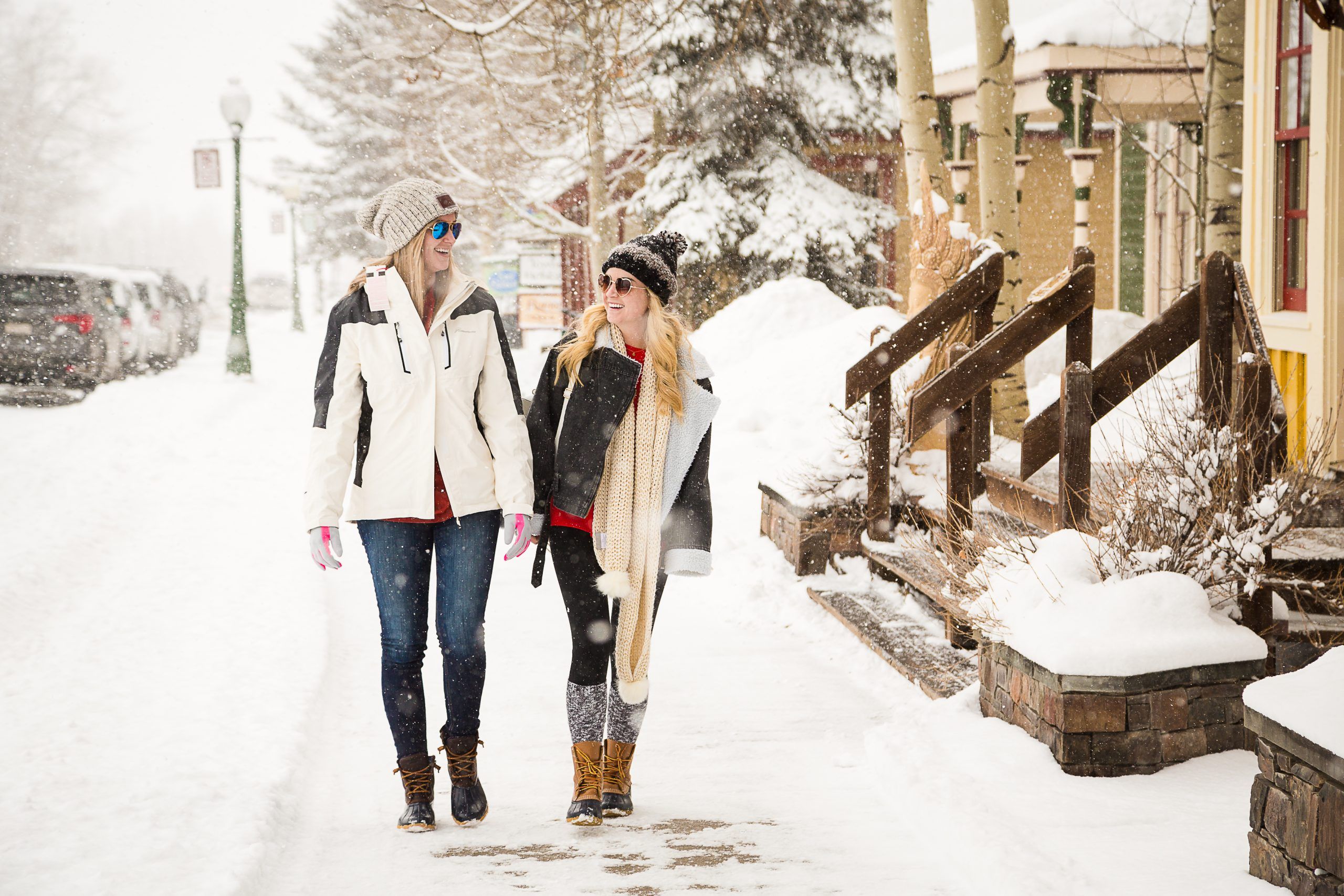
What to wear in Crested Butte in winter
If you visit Crested Butte in winter, dress in layers, and cover all exposed skin against the elements. Clothing in Crested Butte is more casual than the posh styles sometimes spotted in places like Aspen and Vail. As a result of the high elevation and cold temperatures, most looks on the streets of Crested Butte are chiefly functional—costume party attire excepted. Restaurants do not have dress codes.
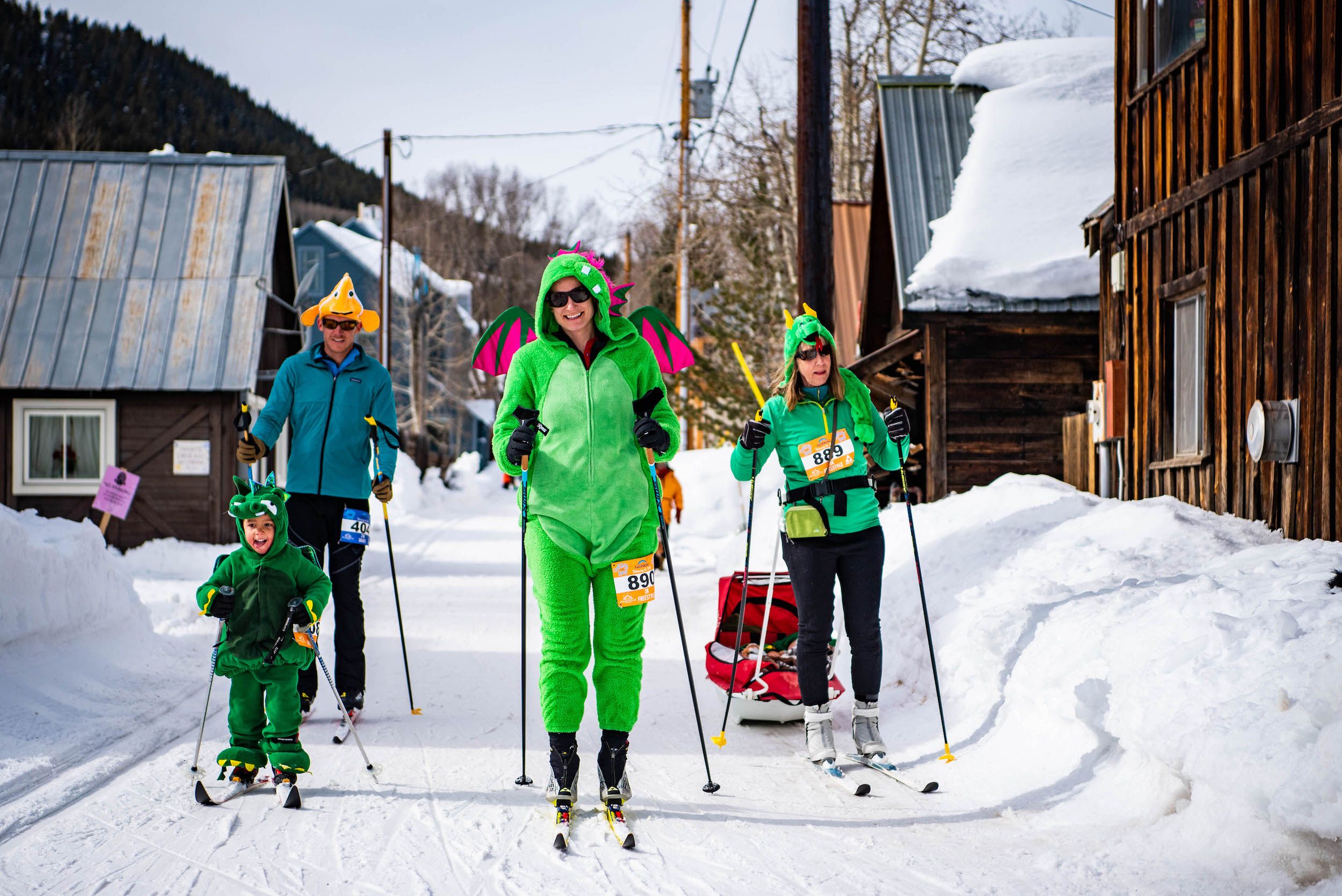
Clothes to pack for a winter trip to Crested Butte and Gunnison:
Here are some ideas for clothing to consider bringing on your trip to Crested Butte.:
- ski jacket or shell
- ski pants
- down jacket or other warm midlayer
- beanie
- neck gaiter or scarf
- weatherproof boots
- wool socks
- wool or synthetic baselayers
- mittens or gloves
- sunglasses
- a tutu, animal onesie or other costume for town events (the weirder, the better)
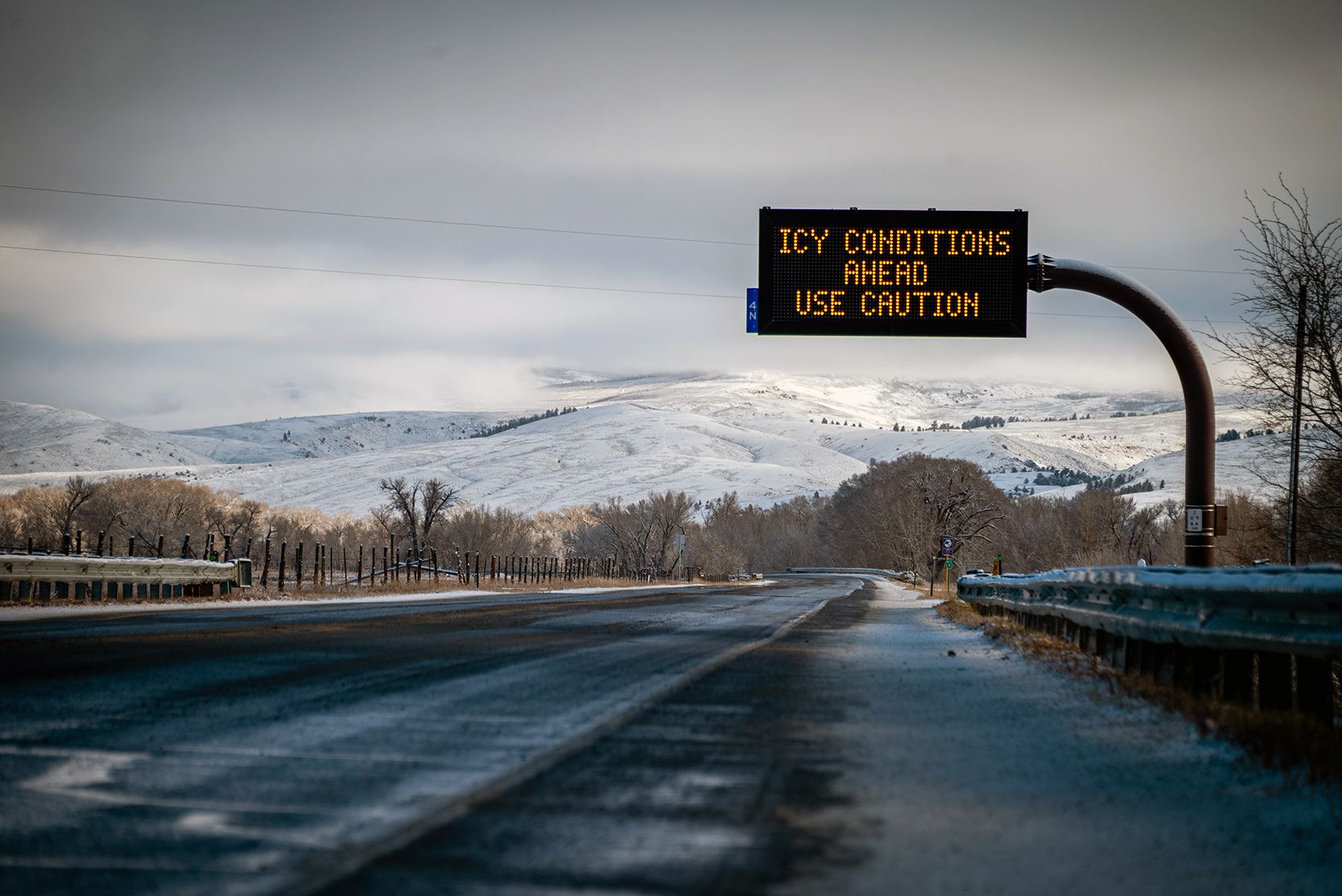
Winter driving in the Rocky Mountains
Winter conditions exist on the roads surrounding Crested Butte and the Gunnison Valley. If renting a car, request a vehicle with four-wheel drive or all-wheel drive. The mountain passes on the four-hour drive between Denver and Crested Butte are steep, curvy and often snowy. These passes include Monarch Pass and Kenosha Pass, both of which top out at an altitude of 10,000-plus feet. Snow tires are a must, and tread should be at least 5/32 of an inch deep. Check the weather, road conditions and local weather cams before driving.
Flights to Gunnison-Crested Butte Regional Airport
The fastest and easiest way to get to the Gunnison Valley is by flying into the Gunnison-Crested Butte Regional Airport (GUC). The airport in Gunnison and is served by nonstop flights from Denver, Houston and Dallas. Car rentals and shuttle services are available.
Getting around the Gunnison Valley in winter
Highway 135
Highway 135 is the only road into Crested Butte during winter. It starts in Gunnison and follows the valley floor up 28 miles to Crested Butte. This two-lane road does not traverse a mountain pass and is not very steep. Still, use caution in winter conditions.
Bus to Crested Butte
The free RTA bus runs between Gunnison and Crested Butte. The Mountain Express bus connects Mt. Crested Butte to Crested Butte every 15 minutes. The Mountain Express is the easiest way to get from town to the ski area. It also saves you the fee for parking in the Crested Butte Mountain Resort lot. Learn more about public transportation in the Gunnison Valley here.
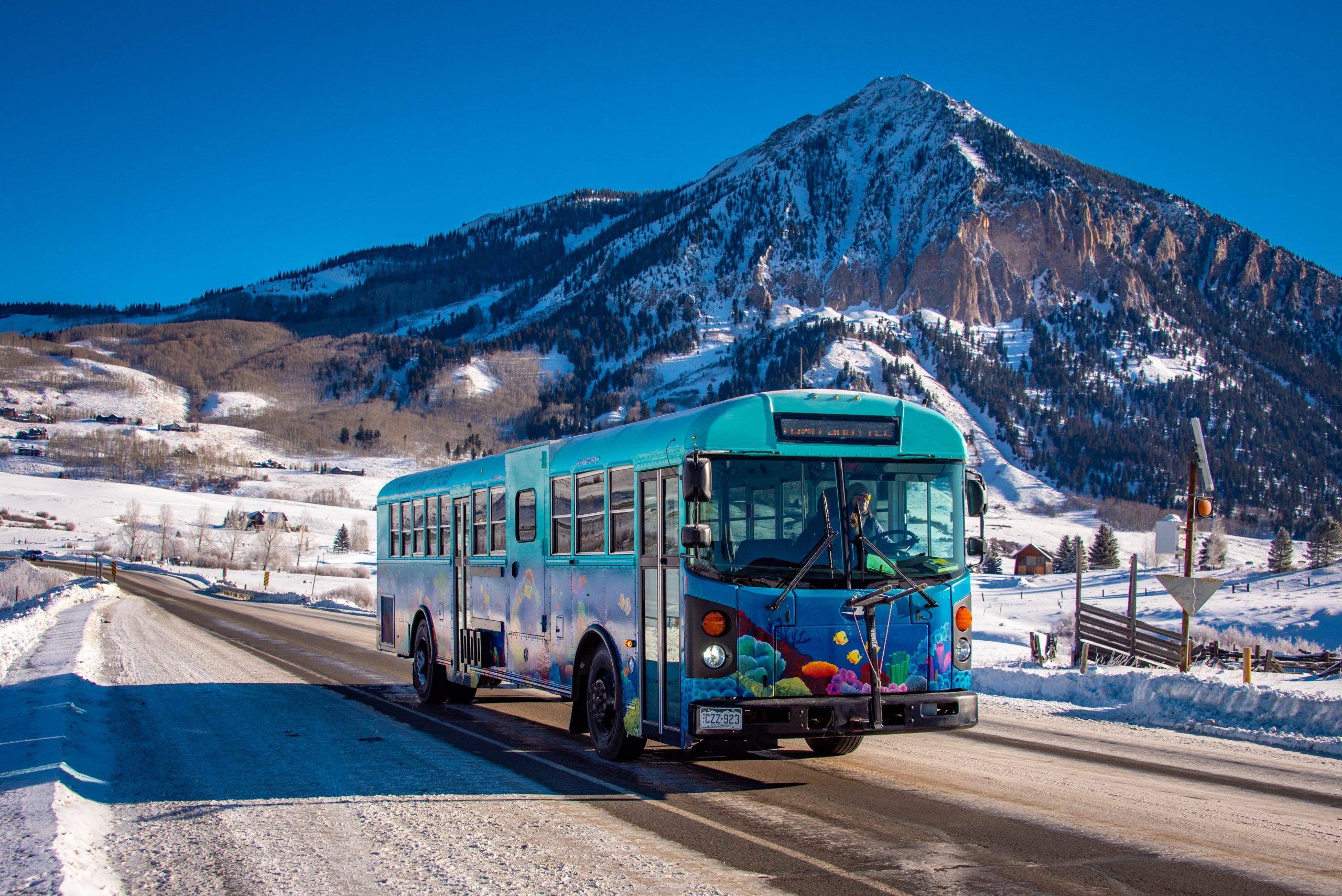
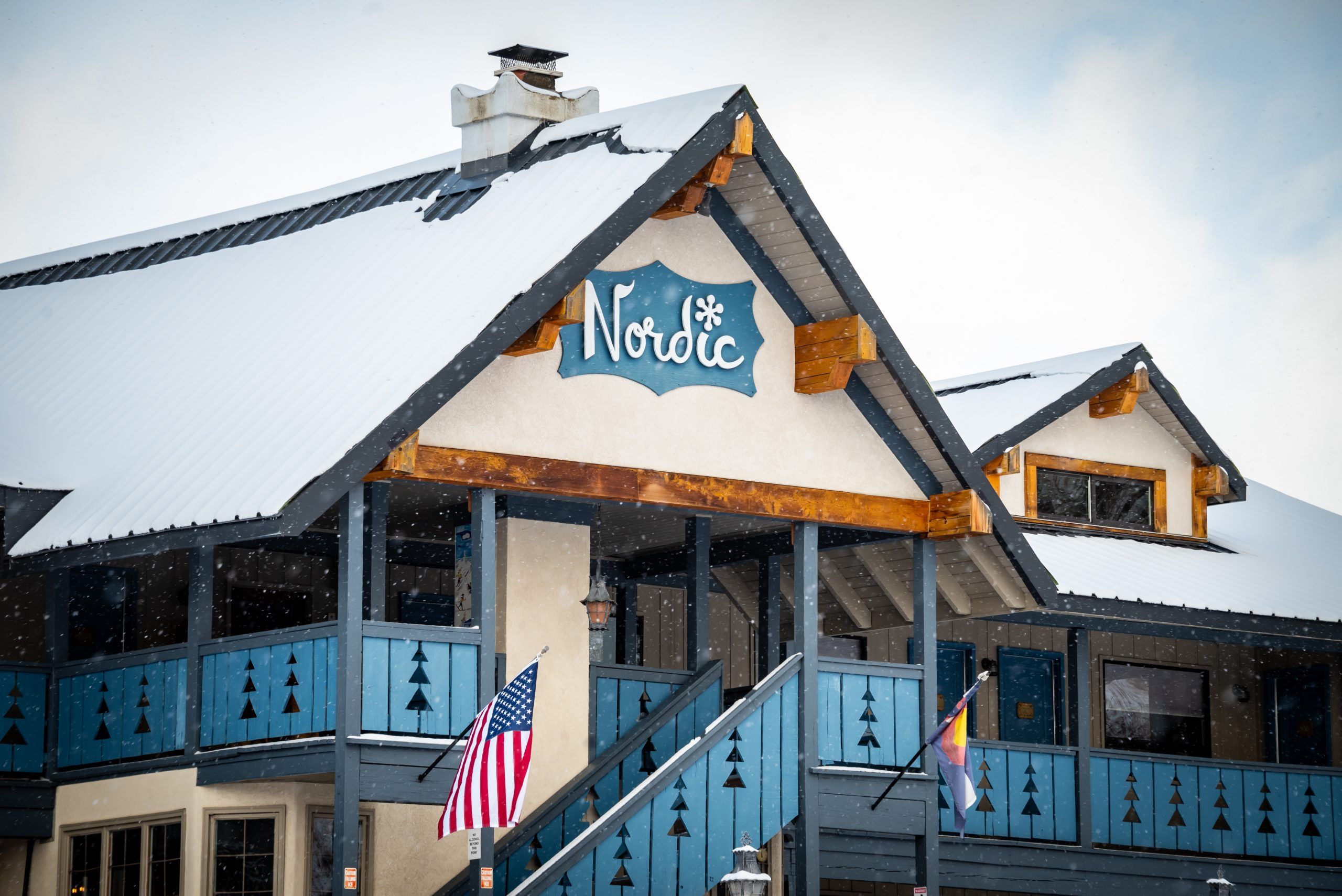
Booking a hotel or vacation rental
The most important part of planning to visit Crested Butte in winter is finding a place to stay. There is a huge variety of lodging options in the Gunnison Valley. Make reservations well in advance, especially if you plan to travel here over the holidays.
Winter events in Crested Butte and Gunnison
From Night of Lights in downtown Gunnison to the Al Johnson Telemark Ski Race at the ski area, there are some unforgettable winter events in the Gunnison Valley. Dates and details can be found in our winter event guide.
-
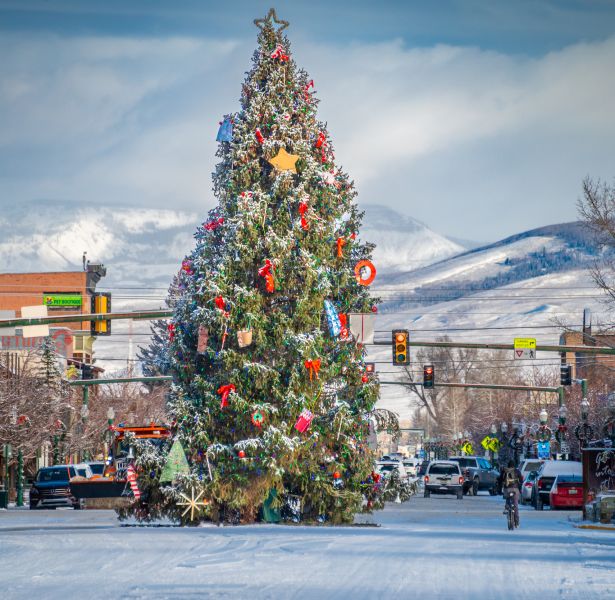
12 Reasons to Spend the Holidays in Crested Butte and Gunnison
Spend the holidays in Gunnison and Crested Butte and experience the charm of these cozy mountain towns. Crested Butte is nestled among snowcapped peaks, giving the colorful town a snowglobe-like […] -
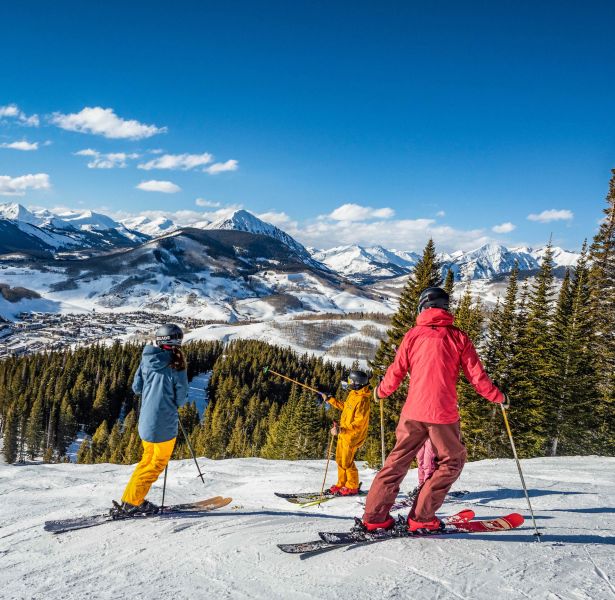
Nonstop Chicago Flight to Gunnison-Crested Butte Regional Airport
United is offering a new nonstop flight from Chicago O’Hare (ORD) to Gunnison-Crested Butte Airport (GUC) starting in winter 2025! This flight will be offered from February 15 to March […] -
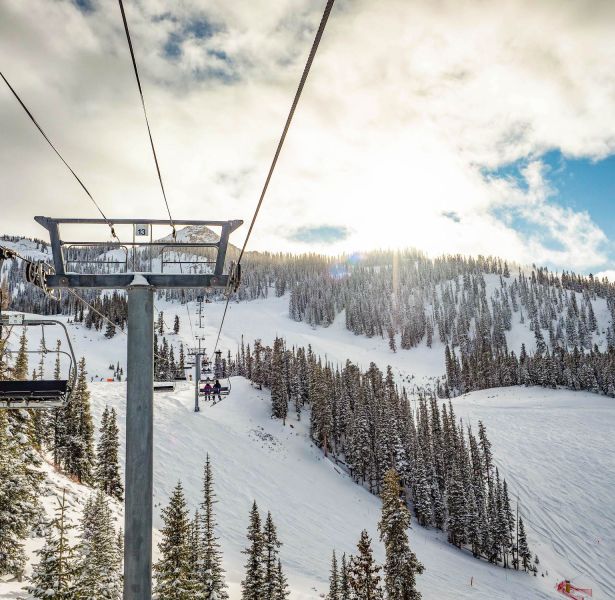
Intermediate and Advanced Crested Butte Skiing from Paradise Express Lift
Some of the best intermediate and advanced Crested Butte skiing is off the Paradise Express Lift. Paradise Express, one of the longest lifts at Crested Butte, offers a wide range […] -
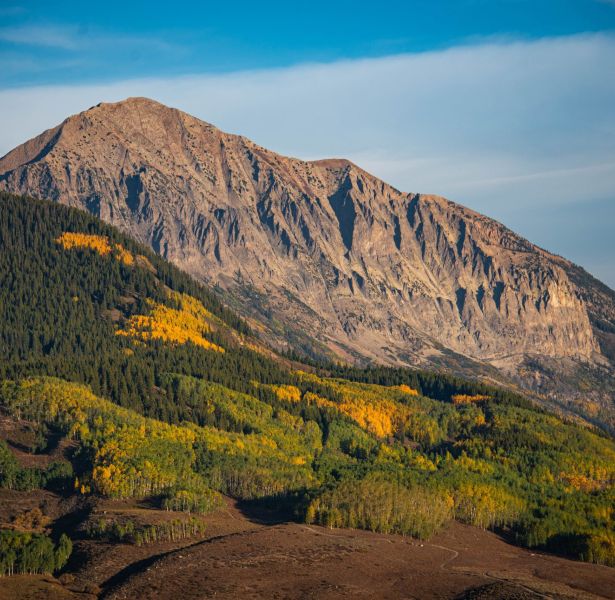
Things to do in Gothic
There are many exciting things to do in Gothic, Colorado, from hiking scenic trails to exploring the area’s rich history. History buffs, science aficionados and outdoor lovers can find something […] -
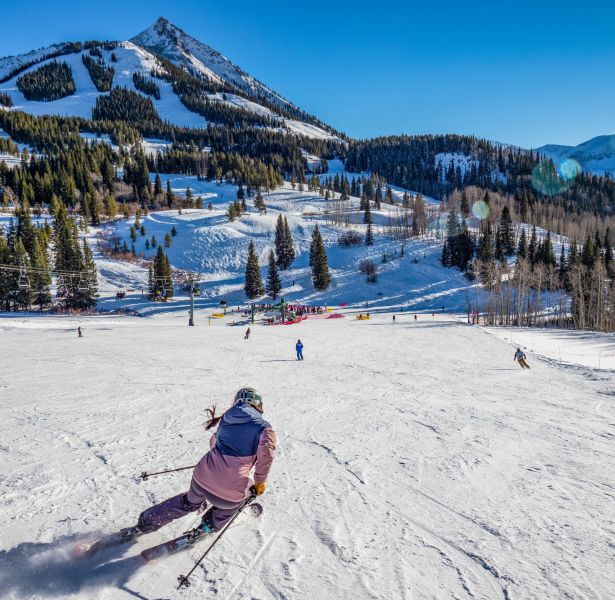
Crested Butte Beginner Skiing Guide
Looking for easy ski runs at Crested Butte Mountain Resort? Although Crested Butte is famous for its extreme terrain, easy ski trails at Crested Butte make up 14% of the […] -
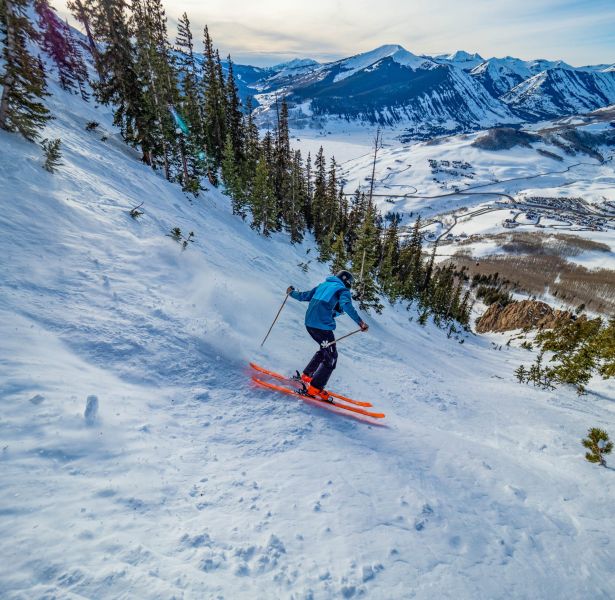
Crested Butte Vs. Monarch Mountain
If you’re planning a ski trip to the Rocky Mountains of Colorado, you might be wondering if you should ski at Crested Butte Mountain Resort (CBMR) or Monarch Mountain. CBMR […]
SUBSCRIBE TO OUR EMAIL NEWSLETTER!
We'll send you travel tips and news twice a month. Unsubscribe anytime!
